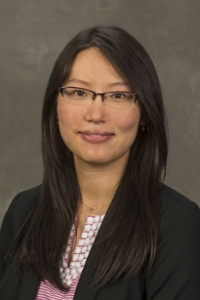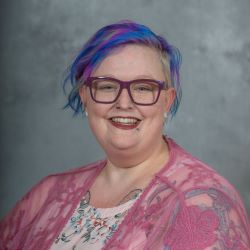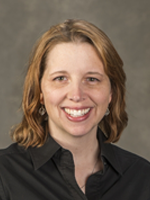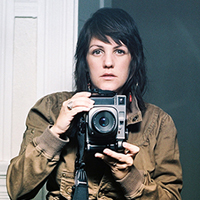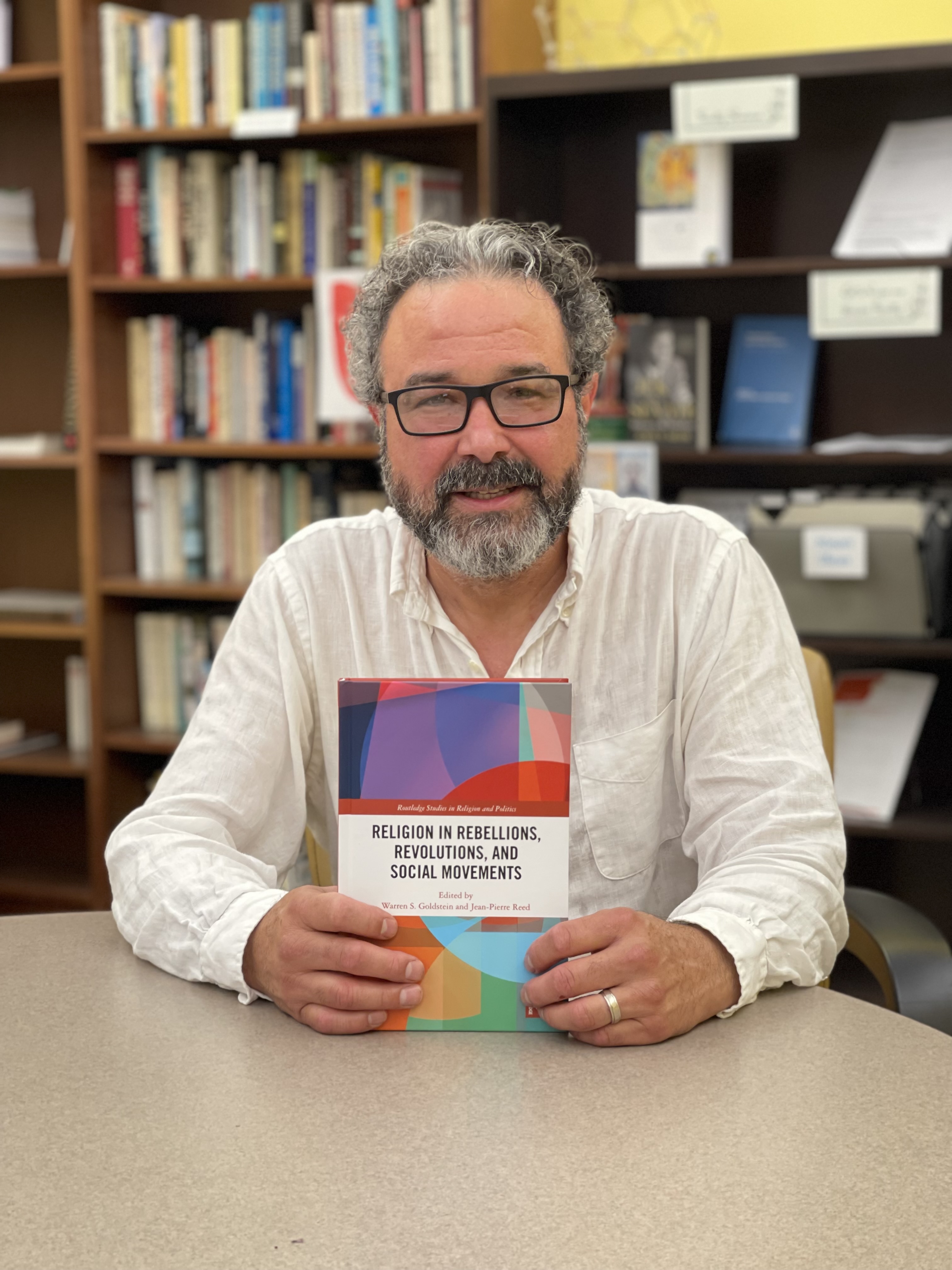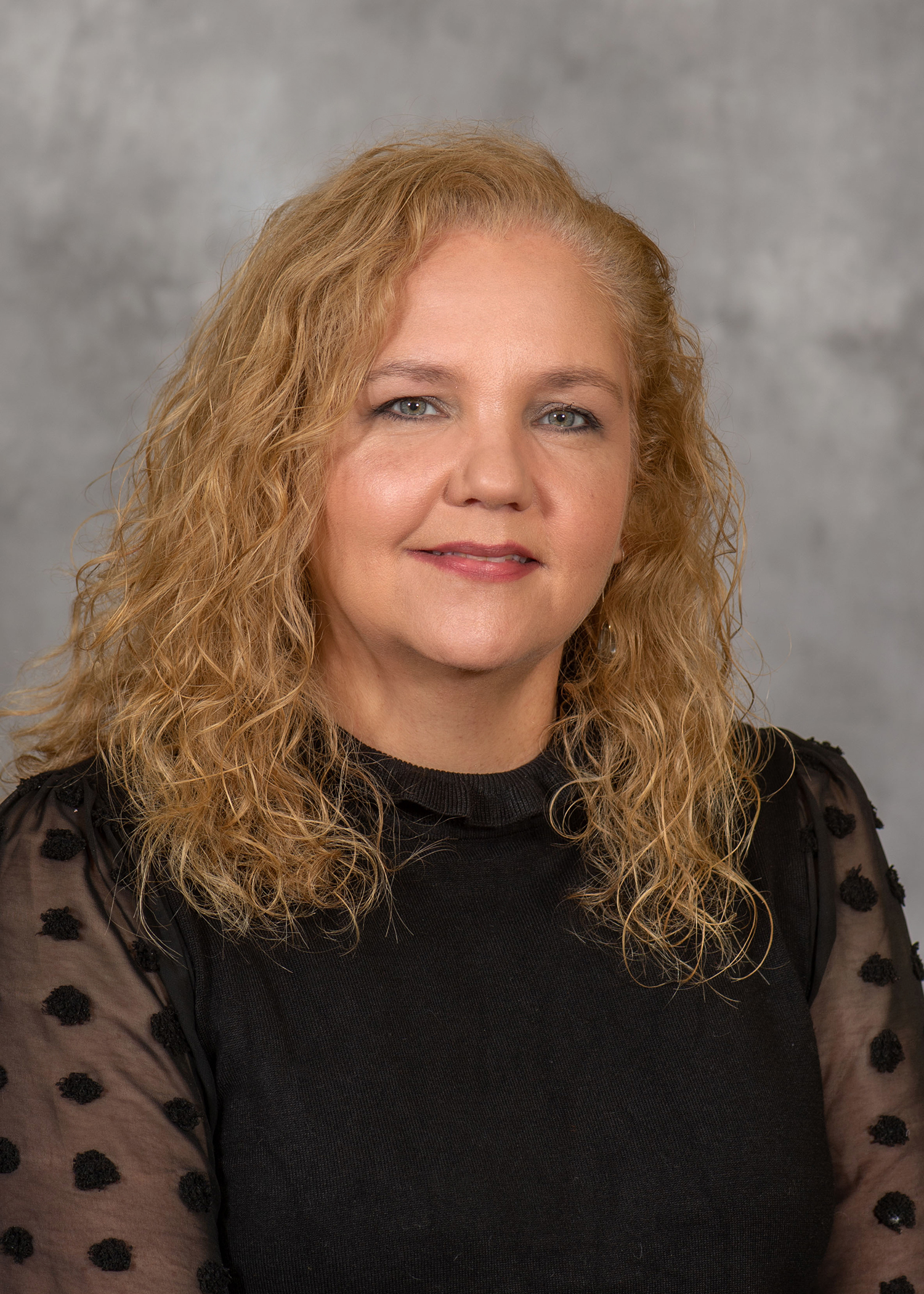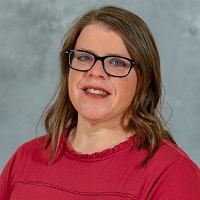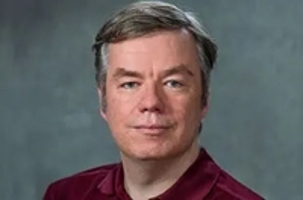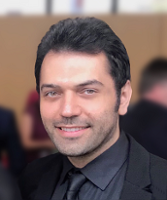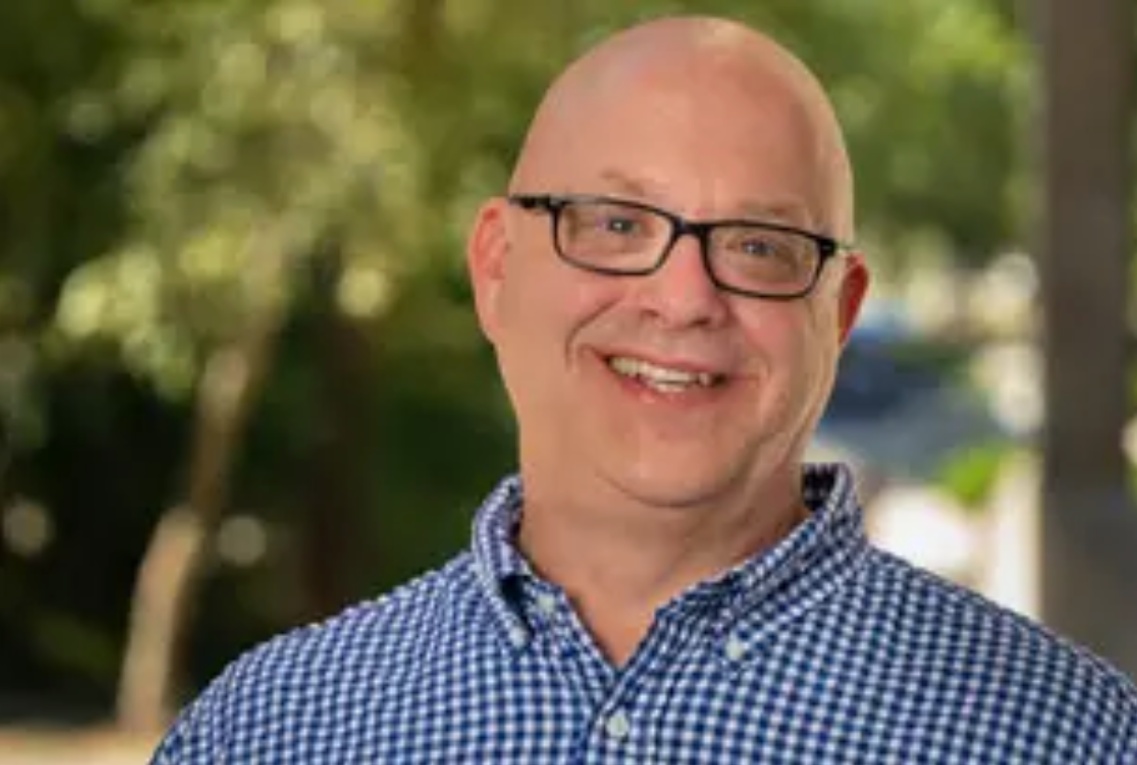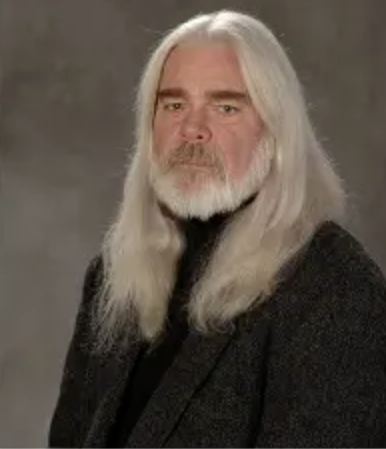University Honors Teaching Fellows
Previous Faculty Fellows
2024-2025
Fall 2024
Making Math Fun for Children: Design Literacies, STEM Education and Community Engagement

Lingguo Bu
Professor of Mathematics Education, School of Education
Grant Miller
Professor of Education, College of Education
Creativity matters. So does community engagement. In this seminar, students will learn about a basic concept in design thinking, i.e., Problem-Based Learning (PBL) and how it may be used in freeing the creativity of children and making the teaching of Science, Technology, Engineering, and Mathematics (STEM) fun for middle and elementary school children. In this theory-practice seminar, students will study the history, development, and curricula related to Problem-Based Learning (PBL) and try out what they have learned with children. We will design toys and exercises to make these subjects fun and meaningful. In the process, students will discover the joys of both learning and teaching. This seminar brings together some of the best Saluki traditions, i.e., the legacy of Buckminster Fuller’s contributions to design thinking and SIUC commitment to enriching the local community.
Games People Play (Act and Dance)

Darryl Clark
Professor, School of Theatre; College of Arts and Media
In our society, power is gained by manipulation of mind and spirit. These manipulations take form in role play, which is found in childhood games and playacting. In this seminar, we will explore the portrayal and use of childhood games in works of theatre, film, and dance. The course will include an invitation to a live performance of William Inge's THE RAINY AFTERNOON, a short play about three children enacting the daily rituals of their parents. It ends with a darkly dramatic conclusion. There will also be viewing of classic films such as Renoir's RULESOF THE GAME and Herbert Ross' THE LAST OF SHEILA, Genet's THE MAIDS and the dance work JEUX, created by Vaslav Nijinsky. Students will be encouraged to build team presentation about a work that explores the manipulation of the mind by recalling children’s games.
Why people who have a different opinion than your own are dumb, or maybe not?
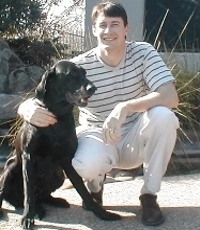
Mike Eichholz
Professor of Zoology, College of Biological Sciences
Many perceive the current level of discord in politics and throughout our society to be unnecessarily high. A primary contributor to this disagreement is likely our ability to silo ourselves by communicating with only like-thinking individuals, both in person and virtual socializing. This partitioning often leads us to vilify people with differing opinions than our own. What most people don't recognize is that thoughts and opinions are a chemical response to an external stimulus, creating a reflexive reaction based almost exclusively on our past experiences and memories. To be better at accepting people with differing opinions than our own and form consensus among and within groups, we first must understand the basics of how opinions are formed, then understand how past experiences can lead to very different, but valid opinions. In this seminar, students will learn that an opinion is at first a response to an external stimulus over which we have very little control. Additionally, our response to that stimulus (our opinion) can change with additional experience and memories i.e., rational or emotional reasoning. Acquiring a better understanding of how and why these special interests and opinions form can help us work better and achieve consensus within and among group members.
Yoga and Sound Healing
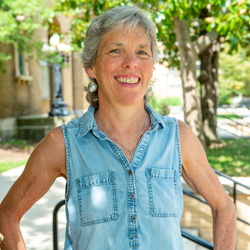
Maria Johnson
Associate Professor, School of Music, College of Arts and Media
This course provides introductions to both yoga and to the healing science of sound. While learning basic alignment principles and core poses and practices of yoga, students will experience first-hand yoga’s health benefits and the healing effects of sound/vibration on brain and body. How can yoga and sound practices help foster clearer thinking, emotional equilibrium, a sense of peace and well-being, balance, flow, and ease in navigating your life? How can yoga and sound practices facilitate greater awareness, compassion, empathy, presence, and deeper interpersonal communication? How can practices of yoga and sound create safe spaces that nurture internal processes and a sense of feeling at home in your body while fostering a sense of community and belonging? This course challenges the student not only to think across disciplinary divides, but also to integrate the creative with the scholarly, the embodied practices of yoga and sound with the scientific principles, evidence-based research and time-honored wisdom behind them.
Cinema and the Revolutionary Conscious
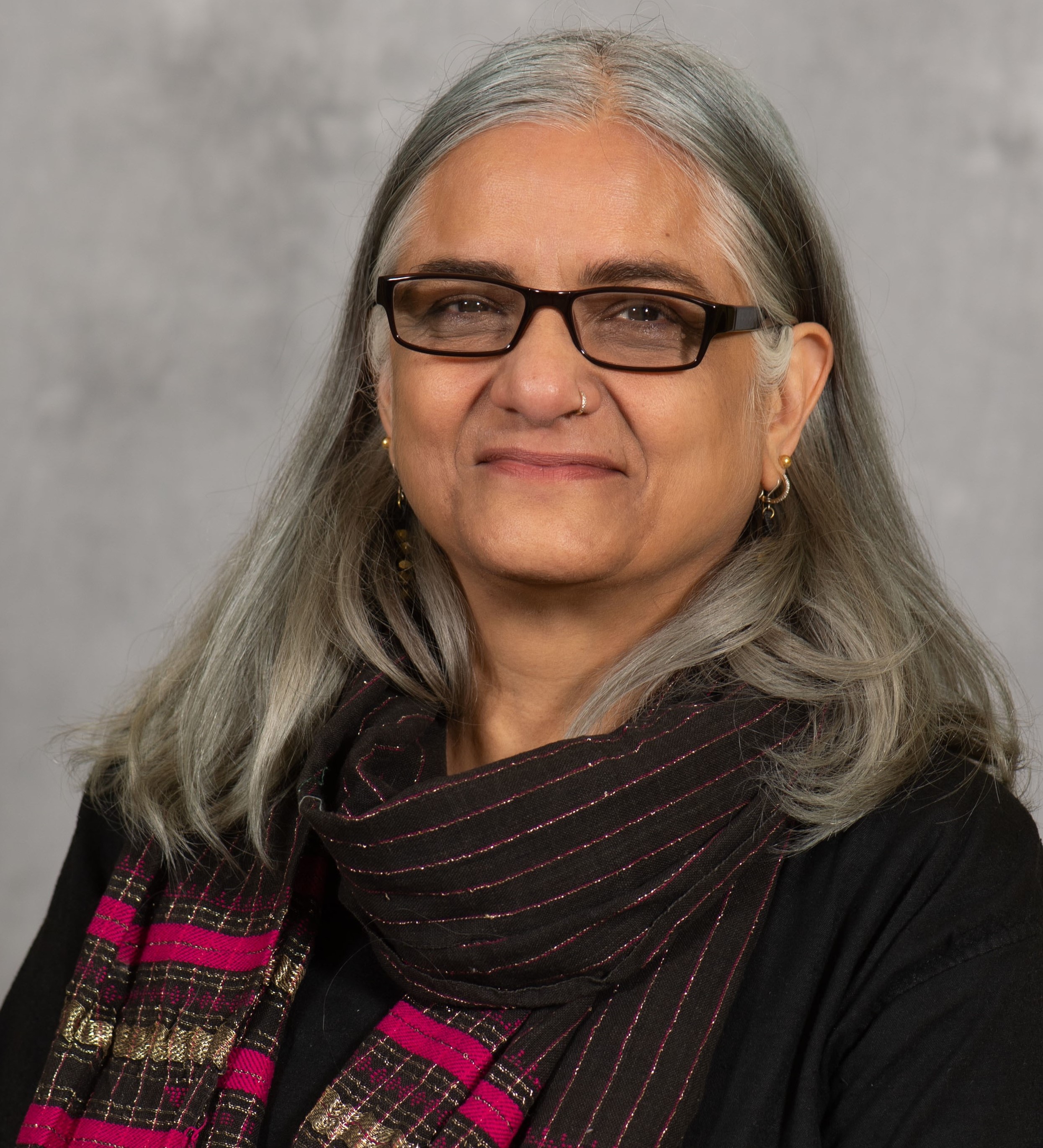 Jyotsna Kapur
Jyotsna Kapur
Professor of Cinema and Media Studies & Director, University Honors Program
Cinema, from its inception, at the end of the 19th and beginning of the 20th century was seen as a participant, an expression of and, in some cases, the instigator of the radical changes we associate with capitalist modernity. From long shots to closeups and from parallel editing to montage, cinema mixed time and space in new ways that mirrored the dramatic changes that marked the 20th century, including rapid technological growth, urbanization, wars, and revolutions. Cinema continued to be considered a disrupter and harbinger of revolutionary consciousness through the important revolutionary movements of the 20th century – socialist, feminist, civil rights, queer, and anti-colonial struggles to name a few. In this course, we will look at cinema as an art form, that is born in a revolutionary moment and continues to be changed by successive movements. We will talk about cinema as art and technology and not “film” – thus photography, film, video, television, and AR & VR will be part of this cinematic history of 20th century leading into our own time.
We Shall Overcome: The History, Possibilities & Continued Significance of the Civil Rights Movement

JP Reed
Professor, School of Africana and Multicultural Studies
Power concedes nothing without a demand. It never did and it never will – Frederick Douglas. This is an introductory course on the U.S. Civil Rights Movement. It is intended to give students a broad understanding of the history of the Civil Rights Movement and how it has been theorized and analyzed. We will learn about key figures, texts, and popular cultural forms that arose with the movement. We will ask: Under what societal conditions did the Civil Rights Movement emerge? What empowered people to sustain this struggle against great oppression? In what ways did the movement transform the understanding of the self and society?
Anthropology and Science Fiction: Culture, Humanity and Technology – New! - FULL
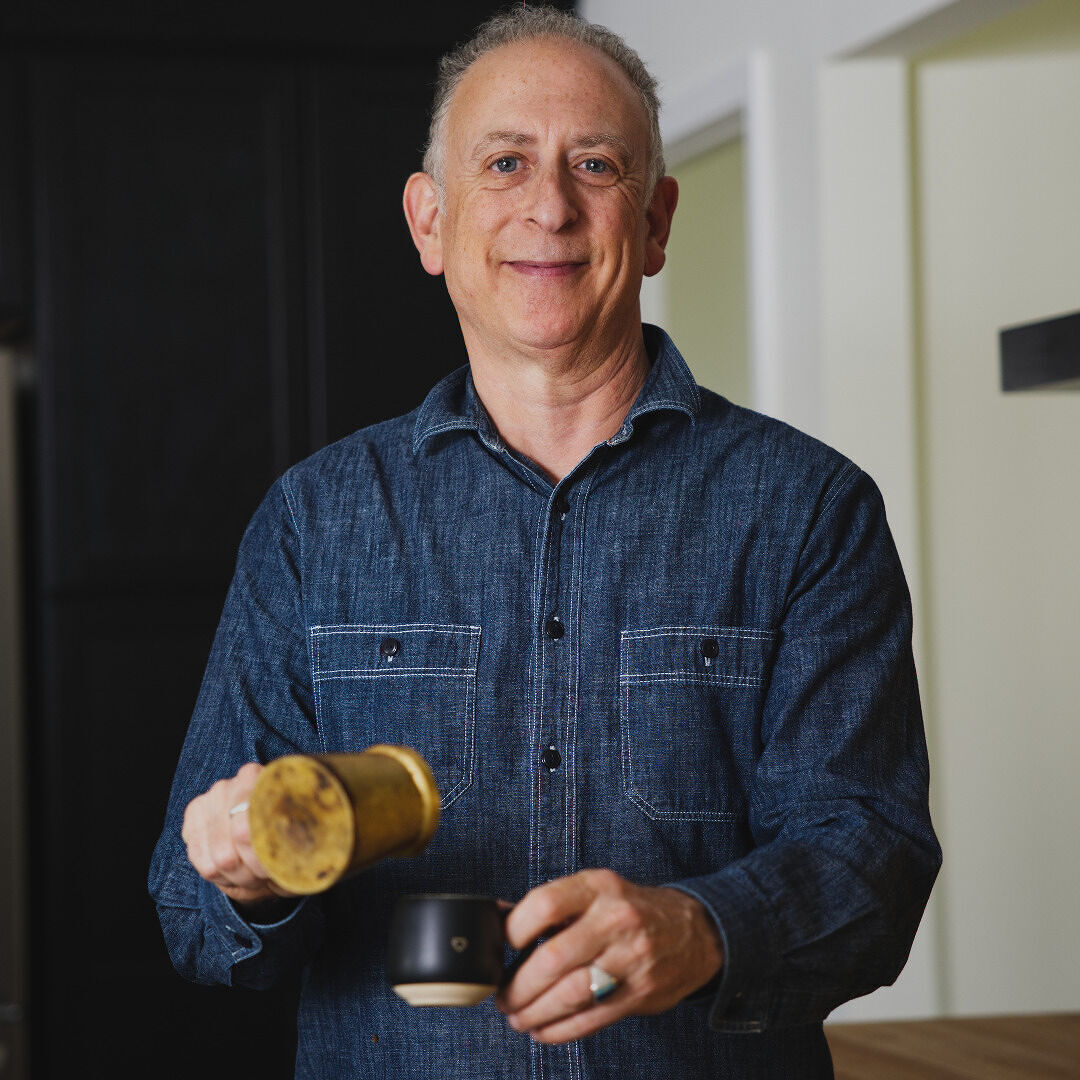
David Sutton
Professor of Biological Science; College of Anthropology, Sociology and Political Science
Our current understandings of what it means to be human and our relationship to technology, nature and the environment are in a period of flux. Artificial Intelligence, the Climate Crisis and changing understanding of animal and even plant cognition have all raised new questions about the boundaries between life and non-life, sentience and lack of sentience, and the ways that dynamic systems interact in meaningful and purposive ways. The course will draw on anthropological understandings of gender, language, human nature, time and social organization to explore specific themes in current fiction including our relationship to technology, genetic modification and genetic engineering and the future of food. How do science fiction and anthropology both call on the imagination to critique the present and possible futures?
While the previous iteration of this course had a major unit (1 month) on Genetic Modification, this version will substitute a section on Climate Fiction and Anthropological work on Climate Crisis as the focal section of the course.
Spring 2025
Arithmetic en route to Cosmos: Beyond Infinity
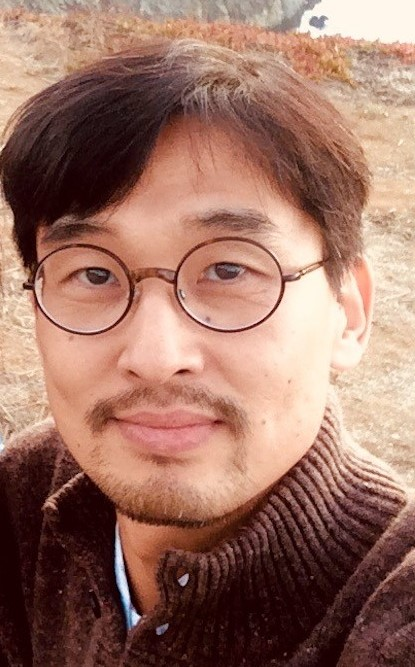
Kwangho Choiy
Associate Professor, School of Mathematical and Statistical Science
The vastness of the cosmos bewilders us. Through human history, we have asked: Why is it the way it is? How did it all start? Where do we come from? And, what are we moving towards? The wonder of the cosmos has been expressed in our arts and in our sciences, in the mathematical patterns’ humans have sought in the universe, and in ways we have attempted to grasp infinity. This course invites students to see the ways in which arithmetic and physics have converged in the effort to understand our place in the cosmos. How have the various branches of mathematics such as Geometry, Algebra, and Topology held the key to solving the mystery of the cosmos?
The Earth Around You
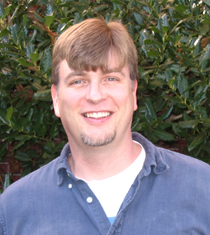 James Conder
James Conder
Professor, Geology, School of Earth Systems and Sustainability
The Earth Around You is geology applied to living. We will examine how geologic processes and hazards influence human activities (and the reverse) and the geologic aspects of economics pollution, and waste disposal problems. The most effective way to learn about the Earth and its processes is to observe it first-hand. We will have the opportunity to discover and observe the geologic processes, structures, and treasures that shape the world around them through a study abroad opportunity in Costa Rica. The country lies on a subduction zone making it prone to earthquakes, volcanoes, and tsunamis. At the same time, the volcanic soils and topography ranging from the coast to the volcanic highlands, make for a diverse ecology and agriculture. For example, bananas and coffee grow in different climes of which Costa Rica has both. The diversity in eco-systems range from rain forest to cloud forest to desert to estuaries and coral reefs. The country is a leader in renewable energy - primarily hydropower, but the development of Lake Arenal for hydropower has come with its own environmental costs. Travel to Costa Rica will occur over Spring Break and we will be meeting before and after the travel to prepare, reflect on, and analyze. Time TBD based on the cohort. Cost: app. $3400.
Accelerating Expert Performance in Sports and Beyond – New!
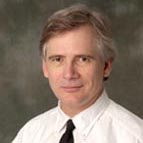 Peter Fadde
Peter Fadde
Professor of Organizational Learning, Innovation, and Development, School of Education
Whether it’s a football quarterback finding an open receiver or a brain surgeon anticipating a cranial bleeding event, expert performers are able to make fast and accurate decisions that even they cannot explain. But what looks and feels (even to the performer) like instinct is actually pattern recognition that lets them see things that others don’t.
What, exactly, do expert performers “see” differently? How did they get those skills? How can more performers get to expert levels more quickly? In our ever more complex world, we need expert performers more than ever.
The expert performers’ advantage is not born-in talent, it is intuitive expertise built up through years of experience and 10,000 hours of deliberate practice. In this course, we dive deeply into decades of research on sports expertise and then apply it to other areas of performance, from law enforcement to classroom teaching.
(Dr. Fadde has patented software to train baseball and softball hitting consults with Major League Baseball teams.)
Generative AI: Computing and Ethical Perspectives – New!
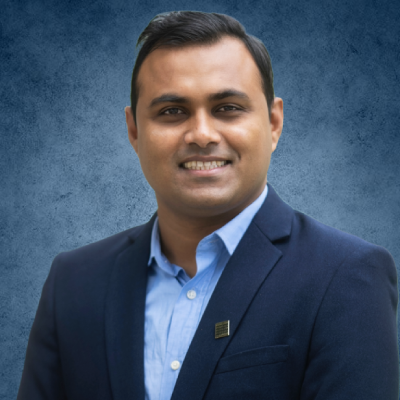 Ahmed Imteaj
Ahmed Imteaj
Assistant Professor of Computer Science, College of Engr, Comp, Tech & Math
This course explores the world of generative AI from two critical angles: the computing aspects of AI model generation and the ethical considerations surrounding its development and deployment. This course will empower students with a deep understanding of generative AI technologies, while equipping them with the ethical framework needed to navigate the evolving landscape of AI technologies responsibly.
The course will address the following questions:
- How do generative AI models work, and what are their real-world applications?
- How can we ensure that generative AI is used responsibly and ethically?
- When should Generative AI be utilized, and when should it be avoided?
- How can generative AI be tailored for positive impact, creativity, and innovation?
This course matters because it equips students with the knowledge and critical thinking skills to navigate the rapidly evolving landscape of generative AI and its ethical implications. Generative AI is shaping the future of various industries, and its ethical use is paramount to prevent misuse and harm. This course empowers students to become informed decision-makers, innovative creators, and responsible AI stewards. It enables them to contribute positively to society by promoting ethical AI development, fostering creativity and curiosity, and addressing the pressing questions surrounding AI's role in our world.
Yoga and Sound Healing
 Maria Johnson
Maria Johnson
Associate Professor, School of Music, College of Arts and Media
This course provides introductions to both yoga and to the healing science of sound. While learning basic alignment principles and core poses and practices of yoga, students will experience first-hand yoga’s health benefits and the healing effects of sound/vibration on brain and body. How can yoga and sound practices help foster clearer thinking, emotional equilibrium, a sense of peace and well-being, balance, flow, and ease in navigating your life? How can yoga and sound practices facilitate greater awareness, compassion, empathy, presence, and deeper interpersonal communication? How can practices of yoga and sound create safe spaces that nurture internal processes and a sense of feeling at home in your body while fostering a sense of community and belonging? This course challenges the student not only to think across disciplinary divides, but also to integrate the creative with the scholarly, the embodied practices of yoga and sound with the scientific principles, evidence-based research and time-honored wisdom behind them.
Historical Imagination and the Cinematic Experience – New!
 Jyotsna Kapur
Jyotsna Kapur
Professor, Cinema and Media Studies & Director University Honors Program, SIUC
Roland Barthes describes photographic cameras as "clocks for seeing." In turning the world and ourselves into images, we mark our existence in time; we cope with the knowledge, consciously or unconsciously, of our existence as historical creatures. In this co-taught class across the SIU system, we will go deep into understanding the relationship between the cinematic (understood as perception and experience) and historical consciousness. We will study the history of cinema but also learn to think historically through cinema. We will consider cinema as an archival, aesthetic, and perceptual phenomenon that has continued to evolve globally in response to its own history and the other arts; and wider historical, political, technological, and economic contexts. In particular, we will consider: How has cinema played with the limits of time and space in human experience? What does it mean when we say life feels like a movie? How does cinema construct and distort memory? Examples will be drawn from across the world.
Psychological Skills for Everyday Life

Eric Lee
Assistant Professor, Psychology
This seminar provides a unique opportunity for students to delve into the principles and practical applications of Cognitive Behavior Therapy (CBT) and apply them to their own lives. CBT is a widely recognized and evidence-based therapeutic approach that focuses on understanding how our thoughts, emotions, and behaviors are interconnected and influence our well-being. Throughout this course, students will gain a comprehensive understanding of CBT theory and techniques and learn how to utilize them to promote personal growth, enhance mental well-being, and overcome challenges. The course will emphasize self-reflection, self-awareness, and self-application as students explore various aspects of their own cognitive, emotional, and behavioral patterns.
How Humans Learn: Science of Learning – New!

Katherine Martin
Associate Professor of Languages and Linguistics, College of Liberal Arts
All students come to the classroom with specific ideas and preconceptions about teaching, learning, and studying, and with existing learning and study habits. However, rarely do students’ ideas and habits align with what research shows us is most effective for developing new knowledge and skills. This class is an introduction to the “science of learning”, a field of research based in cognitive science that investigates how humans learn and applies such research findings to real educational contexts. Students will leave this course with a foundational understanding of the cognitive and social dimensions of learning and teaching as well as best practices for learning, teaching, and studying. We will challenge common myths about learning and students will leave class with practical strategies that can be applied to improve their own learning. Students will also gain experience with reading and analyzing primary research (journal articles) in the science of learning and communicating science to a broader, non-expert audience.
Pyrogeography: The History of Fire on Earth
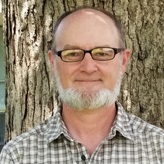 Charles Ruffner
Charles Ruffner
Professor of Forestry, School of Forestry and Horticulture
Pyrogeography is the study of the history of fire on planet Earth integrating plant and animal evolution, global ecologies, and human-social developments through time, leading into modern issues of climate change and loss of biodiversity. Students will be exposed to the extremely long history of fire here on Earth that has shaped ecosystems as well as fostered our own human development and evolution through reading current literature and discussing modern issues of firestorms through mixed media presentations and videos. While the study of fire has a long history, this new field is exciting and integrates so many fields of scientific inquiry that surely students will find the course engaging, timely, and expansive to their breadth of studies here at the University.
Playing at Revolution – New!
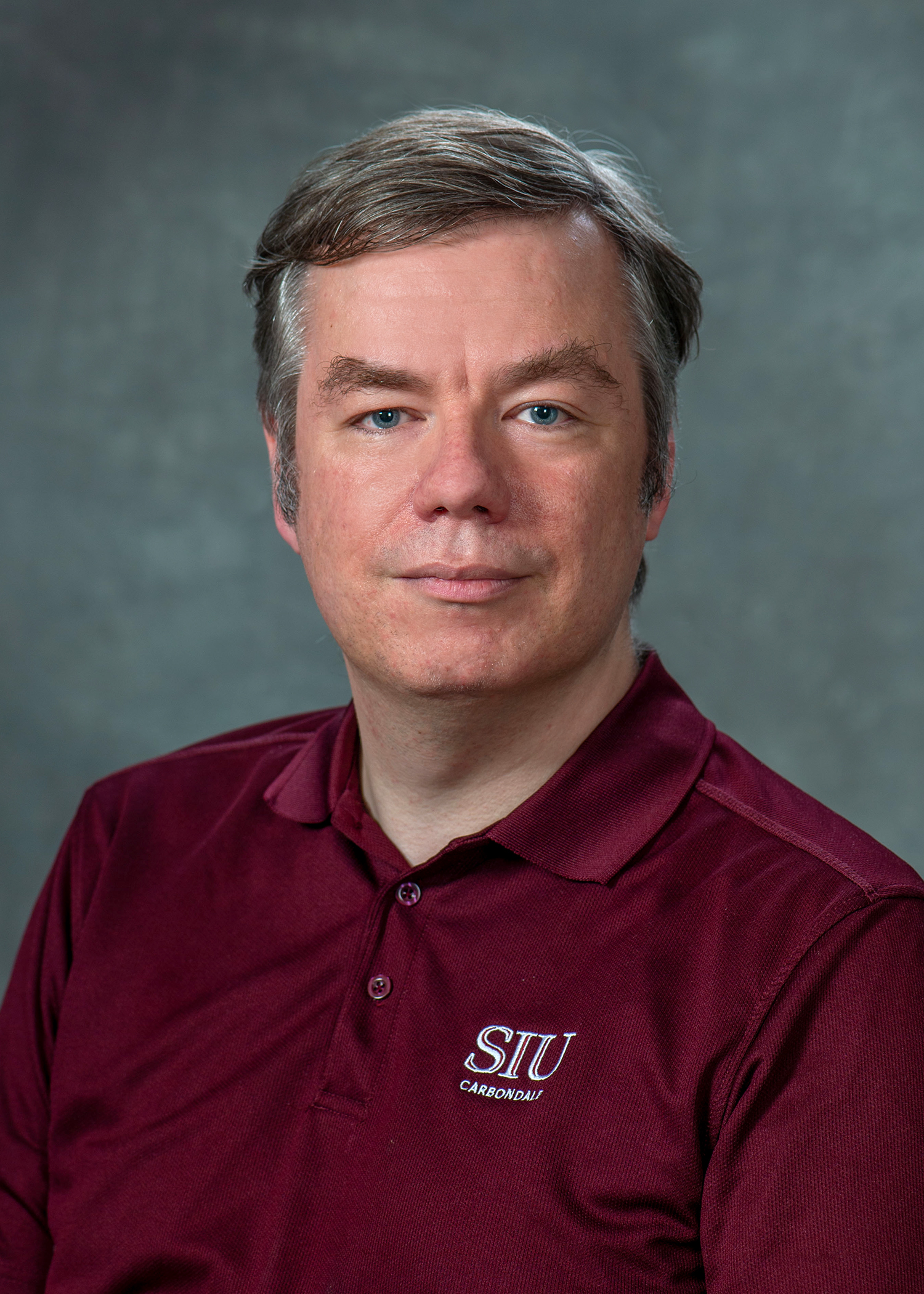 Joseph Sramek
Joseph Sramek
Associate Professor of History and Philosophy, College of Liberal Arts
Responding to the Honors cluster theme for 2024-2025 of "Play and Civilization: History, Theory, Practice," this course takes up the theme of revolution in the modern world through two full-length Reacting to the Past games, one on the French Revolution (which takes place in 1791-92) and another on the Mexican Revolution (which takes place between 1912 and 1920). Reacting to the Past, used at over 500 colleges and universities worldwide including in several major Honors programs, is an experiential learning method that combines deep critical analysis of primary texts with historical roleplaying. Students grapple with major works and ideological conflicts which shaped the world through playing actual historical character and advancing his or her character's ideas and goals through both cooperative and competitive gameplay. In the process, students not only learn about a historical event or major ideas far more deeply than in more "traditional" pedagogies but also appreciate more profoundly than in a lecture or classroom discussion the role of historical contingency in shaping what occurred. They also learn various intangible "soft skills" relating to public speaking, rigorous analysis of primary texts, and the arts of persuasion.
The Past, Present, and Future of Machine Learning – New!
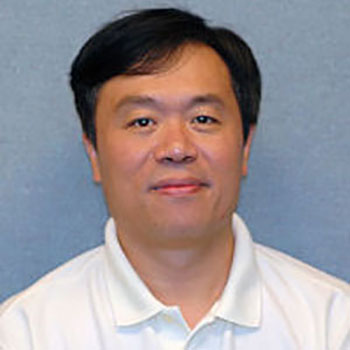
MingQuing Xiao
Professor, School of Mathematical and Statistical Science
This seminar will provide an overview of the history, current state, and possible future of machine learning. The seminar will cover the evolution of machine learning from its early days to its current state and explore the latest trends and developments in the field. Topics covered will include supervised and unsupervised learning, deep learning, neural networks, and more. The seminar will also examine the ethical implications of machine learning and its impact on society. By the end of the seminar, students will have a solid understanding of how to think about the past, present, and future of machine learning.
2023-2024
Fall 2023
Earthling Ethics: Philosophy in Action– New!
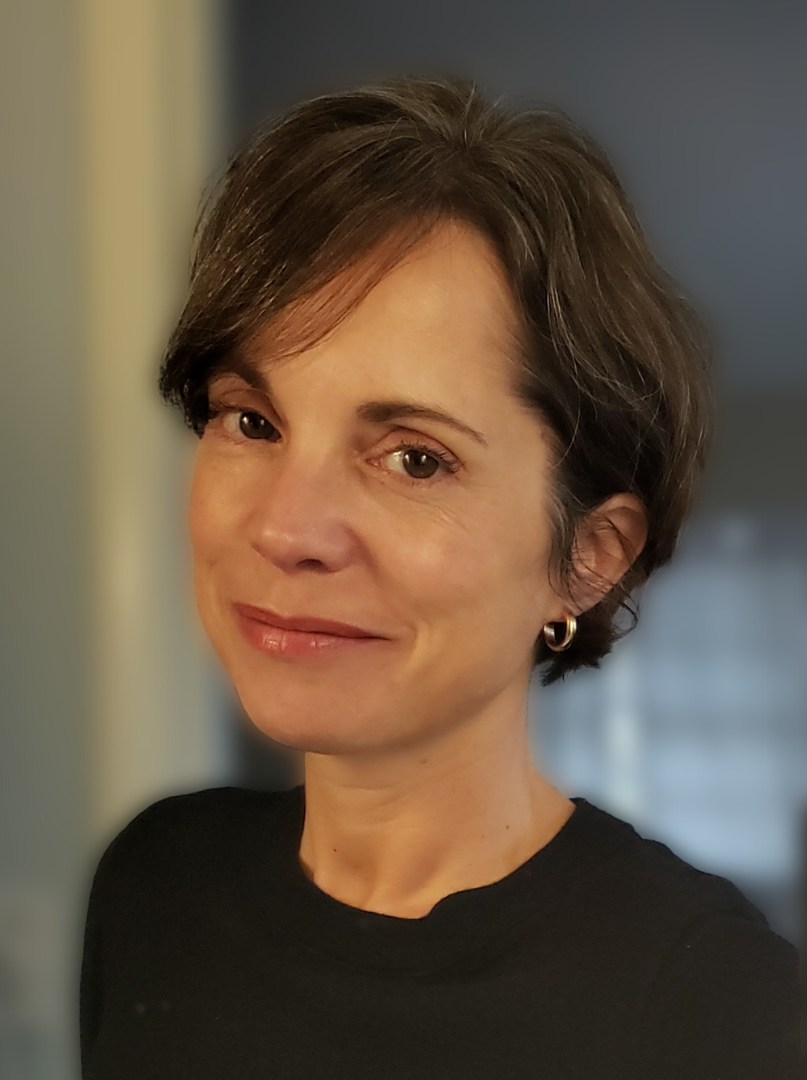
Erin Anthony
Lecturer, School of Literature, Writing and Digital Humanities
How can philosophy help us navigate the uncertainties of our time? In the era of climate change and its attendant difficulties, can philosophy provide consolation as well as concrete, clear guidance? Can we, to paraphrase philosopher Will MacAskill, be "doing good better"? This course explores the role of ethics in contemporary environmental advocacy, policy and grassroots action. Our reading will guide investigations into three main environmental issues of contemporary life on Earth: the exploitation, loss and suffering of fauna (animals); the loss, division and degradation of flora (plants and soil); and climate change. Because philosophy provides us with ideas about how to live - and because moral philosophy in particular suggests ways we ought to live - we will experiment with applied ethics. Students will design a project that is guided by a particular ethical approach (or combination of approaches); ideally, the project will be informed by the students' respective chosen academic disciplines or interests. We will use the SIUC campus as our laboratory and seek out faculty as mentors for guidance. We will use the abundant resources on campus to create ways to care for our world - here and now.
Arithmetic en route to Cosmos – New!
 Kwangho Choiy
Kwangho Choiy
Associate Professor of the School of Mathematical and Statistical Science
The vastness of the cosmos bewilders us. Through human history, we have asked - why is it the way it is, how did it all start, where do we come from, and what are we moving towards? The wonder of the cosmos has been expressed in our arts and in our sciences, in the patterns humans have sought in the universe, and in ways we have attempted to grasp infinity. This course invites students to see the ways in which arithmetic and physics have converged in the effort to understand our place in the cosmos. How have the various branches of mathematics such as Geometry, Algebra, and Topology held the key to solving the mystery of the cosmos?
The Maternal in Movement
 Darryl Clark
Darryl Clark
Assistant Professor of Musical Theatre and Dance
Pyrogeography is the study of the history of fire on planet Earth integrating plant and animal evolution, global ecologies, and human-social developments through time, leading into modern issues of climate change and loss of biodiversity. Students will be exposed to the extremely long history of fire here on Earth that has shaped ecosystems as well as fostered our own human development and evolution through reading current literature and discussing modern issues of firestorms through mixed media presentations and videos. While the study of fire has a long history, this new field is exciting and integrates so many fields of scientific inquiry that surely students will find the course engaging, timely, and expansive to their breadth of studies here at the University.
Why people who have a different opinion than your own are dumb, or maybe not? – New!
 Mike Eichholz
Mike Eichholz
Professor of Zoology, College of Biological Sciences
Many perceive the current level of discord in politics and throughout our society to be unnecessarily high. A primary contributor to this disagreement is likely our ability to silo ourselves by communicating with only like-thinking individuals, both in person and virtual socializing. This partitioning often leads us to vilify people with differing opinions than our own. What most people don't recognize is that thoughts and opinions are a chemical response to an external stimulus, creating a reflexive reaction based almost exclusively on our past experiences and memories. To be better at accepting people with differing opinions than our own and form consensus among and within groups, we first must understand the basics of how opinions are formed, then understand how past experiences can lead to very different, but valid opinions. In this seminar, students will learn that an opinion is at first a response to an external stimulus over which we have very little control. Additionally, our response to that stimulus (our opinion) can change with additional experience and memories i.e., rational or emotional reasoning. Acquiring a better understanding of how and why these special interests and opinions form can help us work better and achieve consensus within and among group members.
Yoga and Sound Healing
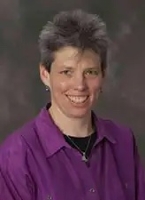 Maria V. Johnson
Maria V. Johnson
Associate Professor of Ethnomusicology, School of Music
This course provides introductions to both yoga and to the healing science of sound. While learning basic alignment principles and core poses of yoga, students will experience first-hand yoga's health benefits and the healing effects of sound/vibration on brain and body. How can yoga and sound practices help foster clearer thinking, emotional equilibrium, a sense of peace and well-being, balance, flow and ease in navigating your life? How can yoga and sound practices facilitate greater awareness, compassion, empathy, presence, and deeper interpersonal communication? How can practices of yoga and sound create safe spaces that nurture internal processes and a sense of feeling at home in your body while fostering a sense of community and belonging? This course challenges the student not only to think across disciplinary divides but also to integrate the creative and the scholarly, the embodied practices of yoga and sound with the scientific principles and concepts behind them.
Imagining the cosmos: How the aesthetic impulse makes us human?

Jyotsna Kapur
Professor, Cinema and Media Studies & Director University Honors Program, SIUC
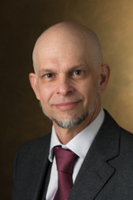
Eric Ruckh
Associate Professor, History & Director University Honors Program, SIUE
From the famous paleolithic cave paintings, from approximately 35,000 to 40,000 years ago, humans have been making art, that is both representing the world and inventing other worlds. This drive is one of the definitive features of our species, of who we are and how we think. It seems an unavoidable necessity—the reason why we can be described both as homo faber (as makers) and homo ludens (as playful). Is the artistic impulse an impulse to preserve or to play, to waste or to wonder? Is it how we grasp the reality of our existence or how we delude ourselves away from it? Is the artistic impulse liberatory or does it socialize us into structures of exploitation? In this seminar, we ask: why do humans make art and how art makes us human?
SALUKI-XR: Producing & Sharing Space Among the Stars - Student Generated! - New!
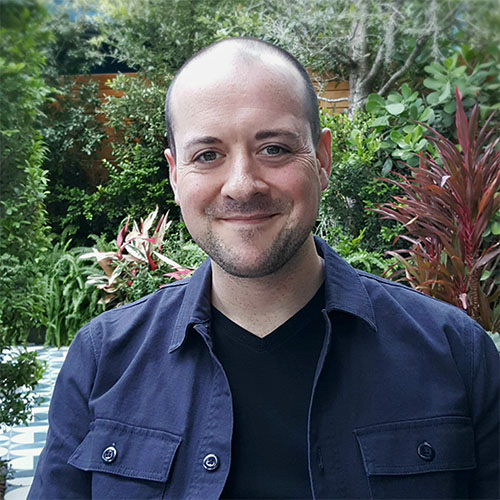
Kevin Mercer
Assistant Professor, Radio, Television and Media Arts, College of Arts and Media
SALUKI-XR is a VR workshop during which students will design and build a shared virtual reality research outpost on an uncharted planet. Within this space, students will investigate the ethical implications of space travel and colonization while building physical and digital collections of objects that communicate a collective history on a new world. What might our own Saluki outpost look like? How would it be designed so that we advance human understanding while seeking to avoid the problematic past of humans on earth? How might we better understand and discuss humankind’s call to expand beyond our own planet given its history with colonialism? How might we shape space and culture simultaneously, though virtually, in the small sandbox environment of SALUKI-XR? This seminar is developed in collaboration with Gavin Melton, a firstyear Honors student.
Making Math Fun for Children: Design Literacies, STEM education & Community Engagement
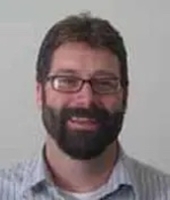
Grant Miller
Associate Professor
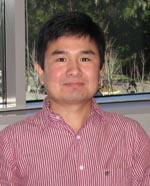 Lingguo Bu
Lingguo Bu
Associate Professor, School of Education
Creativity matters. So does community engagement. In this seminar, students will learn about a basic concept in design thinking, i.e., Problem-Based Learning (PBL) and how it may be used in freeing the creativity of children and making the teaching of Science, Technology, Engineering, and Mathematics (STEM) fun for elementary school children. In this theorypractice seminar, students will study the history, development, and curricula related to Problem-Based Learning (PBL) and try out what they have learned with children. We will design toys and exercises to make these subjects fun and meaningful, in the process, discover the joys of both learning and teaching. This seminar brings together some of the best Saluki traditions, i.e., the legacy of Buckminster Fuller’s contributions to design thinking and the SIUC commitment to enriching the local community.
The Guide to a Good Life: Stoic Philosophy and the Philosophy of Life – New!
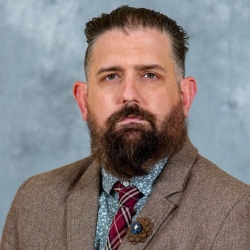
Jeffrey Punske
Associate Professor, School of Languages and Linguistics
Somewhere around 300 BCE, a merchant suffered a shipwreck. Alive but now bereft of his possessions, he stumbled into a bookstore where he first learned of the philosopher Socrates. This merchant would go on to found one of the major schools of Ancient Greek Philosophy—Stoicism.
According to Penguin Random House, e-copies of the Roman politician and philosopher Seneca’s Letters from a Stoic increased 356% during the pandemic year of 2020. What makes an ancient philosophy so compelling today? In this seminar, we will examine the fundamental concepts of Stoicism from ancient times to modern interpretations and receptions. We will trace the influence of Stoic Philosophy from Christian Theology to Cognitive Behavioral Therapy. The primarily goal of the class is for each student to develop their own philosophy of life through the study of Stoicism (this philosophy need not be Stoic!).
Anthropology and Speculative Fiction: Culture, Humanity and Technology – New!
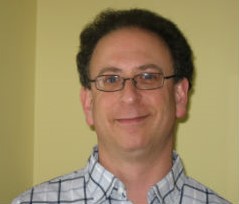
David Sutton
Professor, School of Anthropology
The theme for this year’s Honors Program classes asks us to explore “the cultural imagination of the universe and the specific histories and forms of knowledge that give it birth.” This course does that through examining how concepts and research in the field of cultural anthropology—which takes a cross-cultural approach to knowledge and understanding—can be explored and enhanced through works of science fiction and fantasy. The course will draw on anthropological understandings of gender, language, human nature, social organization, and time to explore specific themes in current fiction including our relationship to technology, genetic modification and genetic engineering and the future of food. How do science fiction and anthropology both call on the imagination to critique the present and possible futures? These themes will be explored through a selection of short stories, novels and films
Spring 2024
Social History of Rock and Roll
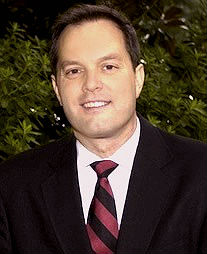
George A Brozak
Associate Director of Bands, Music
In this course, we will ask: What elements of music in a given work make it unique, interesting, and expressive? How do these elements differ from one artist to the next? How were artists (and their music) influenced by race, socioeconomic status, culture, gender, and sexuality? How did the development of various instruments influence the “birth” of rock? What new methods of performance were a result of these developments? Many artists unknowingly signed-away the rights to their music for a few dollars; how have copyright laws in America progressed?
Summer intercession: Old Humans, New Humans – New!
 James Conder
James Conder
Professor, Geology
The evolution of humans and the development of civilization is intertwined with the immediate and surrounding environment. Climate, availability of natural resources, and susceptibility to natural hazards all have and continue to play a role in directing evolution and civilization. South Africa boasts a wealth of early hominid fossils as well as an abundance of mineral and animal resources. In contrast, water can be scarce. This study-abroad will give the student context of the hominid fossils and natural resources presented today in South Africa. Drawing on these examples, we will examine how resources, environment, and hazards influence human evolution and how these continue to influence civilization today. Tentative travel dates: May 20th - May 30th 2024. Approximate cost: $5,500.
The Honors Colloquium
Elizabeth Donoghue
Assistant Director, University Honors Program
Learn about the world of opportunities that may support and enrich an undergraduate or graduate education. This course is an introduction to the process of applying for major scholarships; to the elements of writing style for major scholarship applications; and to other aspects typical of scholarships, graduate, and professional school applications. This class will guide you through this process of self-reflection as you craft essays, develop interview skills and discover research opportunities.
*Participation is highly selective and requires an application essay.
Contact Elizabeth Donoghue at Elizabeth.donoghue@siu.edu or stop by her office at Morris 184D.
Imagining the cosmos: How the aesthetic impulse makes us human?
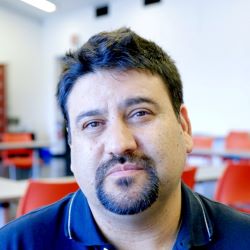
Pirooz Kalayeh
Assistant Professor, School of Media Arts; College of Arts and Media
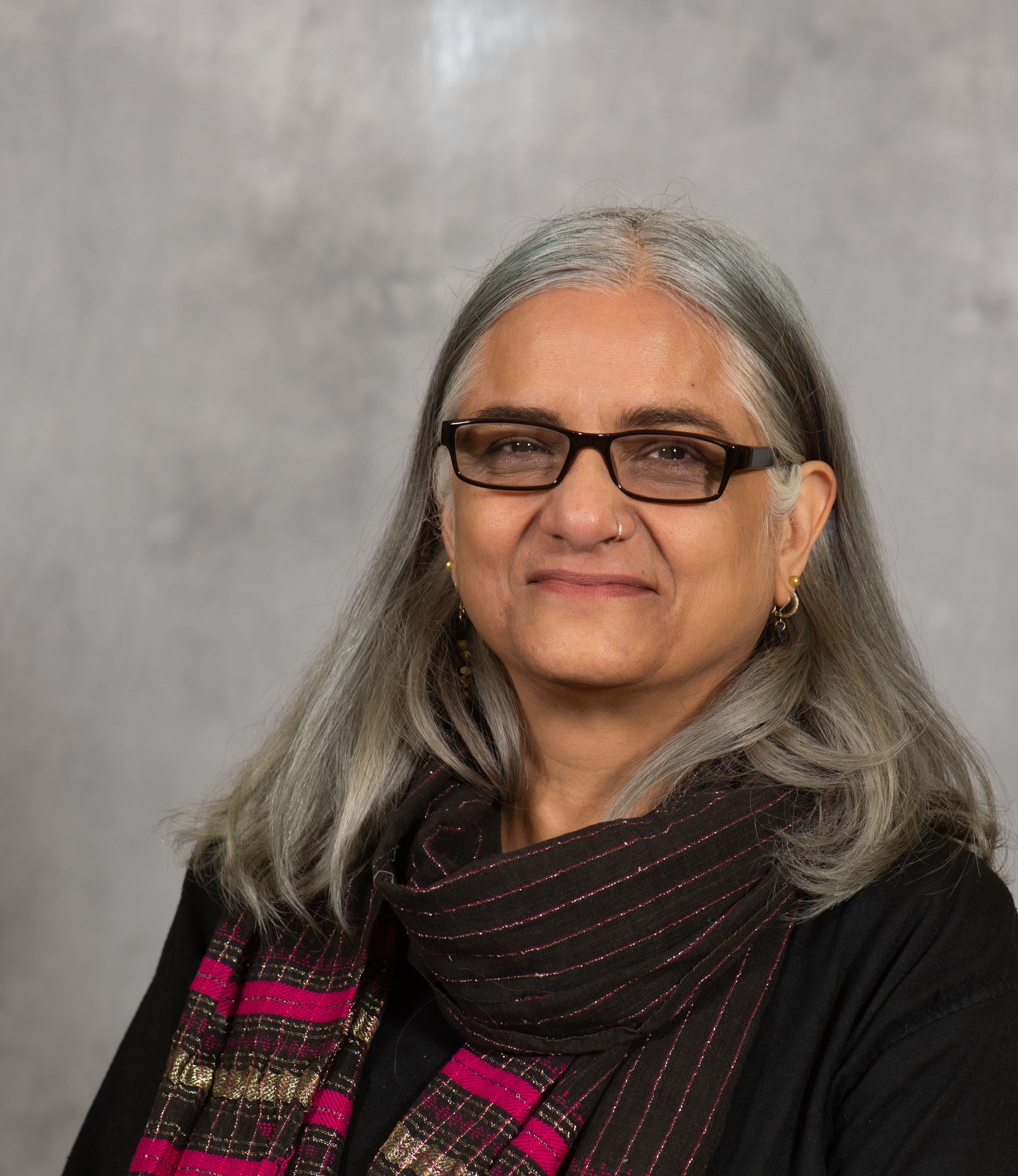 Jyotsna Kapur
Jyotsna Kapur
Professor, Cinema and Media Studies & Director University Honors Program, SIUC
An exploratory course that turns the camera on class (all meanings intended) and asks students to develop a personal self portrait of the seminar class itself. Who are we? What would our self-portrait be in this moment? By looking at how selfportraits and personal storytelling have evolved from fireside chats to Zen koans to the contemporary reality series, we will identify the common elements that are used to tell our personal stories and create our own collective self-portrait. Through cinematic and thought exercises, students will design their versions of what our class really is, whether it’s a glimpse of the larger whole, or an opportunity to uncover and excavate what separates and unites us, and helps us empathize and understand the other personal stories we have yet to hear.
Health Communication Strategies
Sandy Pensoneau-Conway
Director, Associate Professor,Communication Studies
This course aims to center health as a topic about which people and publics communicate; the quality of our communication (that is, the health of our communication); the humans behind health ideas and practices; and technologies that inform all of the above.
We will ask questions such as:
- How do we compassionately respond to our own and others’ health concerns?
- How do we shape communication practices as we advocate for our own and others’ health concerns
- What patterns of communication do we notice when we look at how health is framed in the media
- What strategies do health professionals use when communicating with individual healthcare recipients?
- What strategies do health professionals use when communicating with publics about health care issues, such as vaccines, harm reduction, and safer sex practices?
- Why are there such incredible health disparities, and why do those disparities largely impact minoritized populations?
- Why are some health practices perceived as “normal,” while others are perceived as outdated, folkloric, or “exotic”?
- What are the impacts of looking at health as it intersects with political orientation, geographic location, socioeconomic status, education, race, gender, sexuality, nationality, familial situation, religion, dis/ability, age, and so on?
Intercollegiate Athletics: Origins Through Contemporary
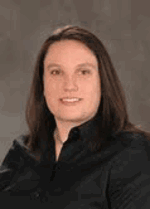
Bobbi Knapp
Associate Professor of Sport Studies, Kinesiology
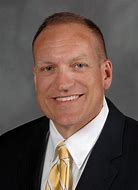 Daniel Mahony
Daniel Mahony
President, Southern Illinois University System
Intercollegiate athletics started out as student-run sport clubs and eventually became recruiting and marketing tools for colleges and universities throughout the U.S. This course will chart the history of intercollegiate athletics from its start on the playing fields of Yale, Harvard, Princeton, and other private institutions as student-run, student-played, and student-coached sporting clubs to the development of the Power Four Conferences and football coaches who make over $10 million dollars a year. As part of this exploration, the course will also examine the impact of factors such as social class, race, ethnicity, sex, gender, sexuality, disability on the intercollegiate athletic experience. The content will also cover topics such as amateurism, labor unions, protests, academic scandals, NIL, the transfer portal, the changing role of the NCAA, and the future of college athletics. Assignments are designed to allow students to explore options to address the issues faced in intercollegiate athletics and propose solutions.
Psychological Skills for Everyday Life
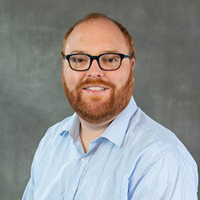
Eric Lee
Assistant Professor, Psychology
This seminar provides a unique opportunity for students to delve into the principles and practical applications of Cognitive Behavior Therapy (CBT) and apply them to their own lives. CBT is a widely recognized and evidence-based therapeutic approach that focuses on understanding how our thoughts, emotions, and behaviors are interconnected and influence our well-being. Throughout this course, students will gain a comprehensive understanding of CBT theory and techniques and learn how to utilize them to promote personal growth, enhance mental well-being, and overcome challenges. The course will emphasize self-reflection, self-awareness, and self-application as students explore various aspects of their own cognitive, emotional, and behavioral patterns.
The Future of Space Exploration
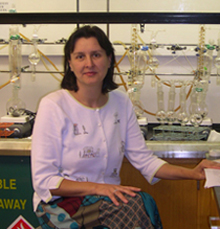
Liliana Lefticariu
Professor, Geology, School of Earth Systems and Sustainability; College of Agriculture, Life and Physical Sciences
The “Future of Space Exploration” course will introduce students to past, ongoing, and future space missions led by NASA, ESA, and JAEA as well as by private companies or mixed state-private endeavors. In order to understand what motivated human space exploration, we will begin by considering the planetary features of our Earth as well as other planets, their moons, and asteroids and trace their common origins within our Solar System. The composition of these extra-terrestrial objects has been guiding the economic incentives of space exploration since these planetary bodies could become a major source of natural resources on Earth. We will discuss the latest space exploration technologies by unmanned robotic probes and human spaceflights, including extraterrestrial water and mineral mining, soil augmentation and food production, and solar and other forms of energy necessary for sustainable colonies on the Moon and Mars. We will also reflect on the legal and political aspects associated with space exploration.
Empathy Through the Arts: Make America Care Again: Re-evaluating, Revisiting, Remixing Interdisciplinary Media Arts Practices (CAM Signature Course)
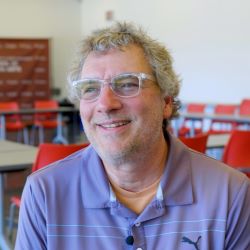
Walter Metz
Professor in School of Media Arts; College of Arts and Media
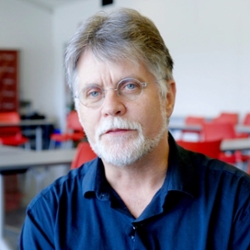 Robert Spahr
Robert Spahr
Professor in School of Media Arts; College of Arts and Media
This is the first iteration of the signature course offered by the College of Arts and Media for Honors students, under the overall heading of Empathy through the Arts. This seminar studies how philosophers and artists from Ancient Greek culture can help us rescue our 21st century contemporary media arts culture, poisoned by a selfishness and cruelties. Students will be encouraged to fuse history, theory, and practice to make art that matters to them and art that attempts to make the world a better home for empathetic behavior. The course poses the question of “Why is empathy particularly important now?” Why are our current politics and media environment not based in empathy? Why is art a solution to this impasse? Students are also encouraged to engage with theories of learning that demonstrate that art brings us together via human interconnectivity, develop art activities that can bring us together, and identify current art practices that rip us apart.
Global Political Economy of Food
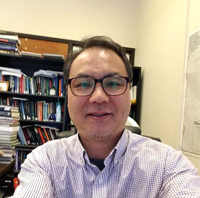
Wanki Moon
Professor, School of Agricultural Sciences; College of Agriculture, Life and Physical Sciences
This course is designed to help students gain global perspectives in coping with food insecurity problems arising from lack of economic development in some regions, population growth, environmental/soil degradations, climate change, and water shortages. The course examines the roles of competition (markets/economics) and cooperation/conflict (international politics) at play shaping our world in general and the global food economy in particular. It examines technological, environmental/ecological, and political/institutional constraints in reducing global hunger/poverty; and increasing food production sufficient to feed nine billion people by 2050. Students will learn diverse social science approaches (i.e., liberal, breformist, progressive, and radical approaches) intended to cope with the problems of the global food insecurity problem. The course will provide students with the opportunity to understand economic (competitive markets), political (power, national interest), and technological forces shaping the global food economy.
Pyrogeography: The History of Fire on Earth
 Charles Ruffner
Charles Ruffner
Professor of Forestry, School of Forestry and Horticulture
Pyrogeography is the study of the history of fire on planet Earth integrating plant and animal evolution, global ecologies, and human-social developments through time, leading into modern issues of climate change and loss of biodiversity. Students will be exposed to the extremely long history of fire here on Earth that has shaped ecosystems as well as fostered our own human development and evolution through reading current literature and discussing modern issues of firestorms through mixed media presentations and videos. While the study of fire has a long history, this new field is exciting and integrates so many fields of scientific inquiry that surely students will find the course engaging, timely, and expansive to their breadth of studies here at the University.
2022-2023
Bodies Moving Borders: The Birth and Development of Tap, Jazz and Hip-Hop Dance in the United States– New!
 Darryl Clark
Darryl Clark
Assistant Professor of Musical Theatre and Dance
This course will delve into the historical roots and development of Tap, Jazz, and Hip-Hop and trace their close links with the African American community. Through the process of learning about these dance forms, including a few workshops in dance, students will discover the interrelation between these three dance idioms. We will also see the full weight of the impact of these dance practices on contemporary forms of popular entertainment.
Snapshots of the U.S./Mexico Border: Politics of Care and Resistance– New!
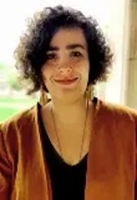
Francesca Dennstedt
Assistant Professor, Languages, Cultures and International Studies, College of Liberal Arts
This course is an analysis of the experience of the U.S./Mexico border from the perspectives of racialized immigrants, refugees, and other minoritized groups as represented in fiction, film, art installations, and other artistic forms. Using these different forms of cultural production as case studies, we will examine the border region as a site of labor, exchange, the construction of citizenship, and discourses of otherness. The questions animating this seminar are: How does the US contribute to shaping contemporary migration (policies, attitudes, longer history of immigration)? How do art and literature represent migration? Can cultural production be a form of caring and resistance?
Exploring Children’s Literature – Student generated!
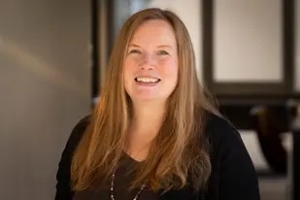
Jane E. Dougherty
Associate Professor, English, College of Liberal Arts
This is a student-generated course, developed at the request of an Honors student desiring to go deeper into children’s literature. In this course, we will engage with a range of juvenile literature and other media, aimed at readers from the ages of 0-18. We will establish the behavioral, psychological, and educational advantages of reading to very young children, examine the development of literacy in children and adolescents, and explore how juvenile literature socializes and acculturates children and adolescents. We will determine what makes a successful children’s book and write our own, revisit the books we knew and loved when we were young(er), and consider a variety of juvenile genres, including non-fiction, horror, comedy, poetry, and fantasy.
Psychological Skills for Everyday Life– New!
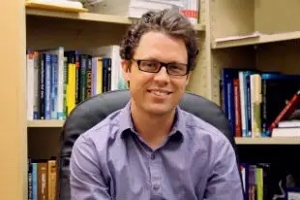
Chad Drake
Associate Professor, Psychology, School of Psychological and Behavioral Sciences
This seminar explores evidence-based approaches to behavior change, with a particular focus on applying these tools in ways that facilitate personal growth. One might think of this class as a “hands on” experience in developing skills to enhance personal motivation, attention, cognitive flexibility, self and social awareness, emotional maturity, and life engagement. We will draw on insights from behavior therapy, cognitive behavioral therapy, and acceptance and commitment therapy; all of which emphasize personal values and mindfulness skills, among other things, to build psychological flexibility. Students will become familiar with the historical backdrop of these technologies and will explore their relevance to the stresses and challenges of ordinary life problems.
Yoga and Sound Healing
 Maria V. Johnson
Maria V. Johnson
Associate Professor of Ethnomusicology, School of Music
This course provides introductions to both yoga and to the healing science of sound. While learning basic alignment principles and core poses of yoga, students will experience first-hand yoga's health benefits and the healing effects of sound/vibration on brain and body. How can yoga and sound practices help foster clearer thinking, emotional equilibrium, a sense of peace and well-being, balance, flow and ease in navigating your life? How can yoga and sound practices facilitate greater awareness, compassion, empathy, presence, and deeper interpersonal communication? How can practices of yoga and sound create safe spaces that nurture internal processes and a sense of feeling at home in your body while fostering a sense of community and belonging? This course challenges the student not only to think across disciplinary divides but also to integrate the creative and the scholarly, the embodied practices of yoga and sound with the scientific principles and concepts behind them.
The Aesthetic Impulse: Why humans make art and how art makes us human?
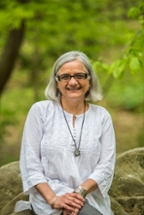
Jyotsna Kapur
Professor, Cinema and Media Studies & Director University Honors Program, SIUC
 Eric Ruckh
Eric Ruckh
Associate Professor, History & Director University Honors Program, SIUE
From the famous paleolithic cave paintings, from approximately 35,000 to 40,000 years ago, humans have been making art, that is both representing the world and inventing other worlds. This drive is one of the definitive features of our species, of who we are and how we think. It seems an unavoidable necessity—the reason why we can be described both as homo faber (as maker) and homo ludens (as playful). Is the artistic impulse an impulse to preserve or to play, to waste or to wonder? Is it how we grasp the reality of our existence or how we delude ourselves away from it? Is the artistic impulse liberatory or does it socialize us into structures of exploitation? In this seminar, we ask: why do humans make art and how art makes us human?
Health Communication: Theory, New Strategies & Campaigns
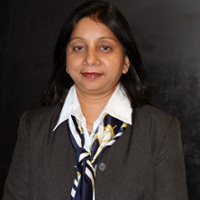
Kavita Karan
Professor, School of Journalism & Advertising, College of Arts and Media
The Covid-19 pandemic has increased the need to understand health issues, preventive, and safe health practices. Understanding the challenges and practices of communicating about health has never been more important than now. This course aims to increase the health literacy in understanding various issues relating to healthy lifestyle and behaviors. It will address the following questions: What are the global and large-scale health threats within the United States and other countries? What are the health communication campaigns and strategies being used to promote better lifestyles, prevent communicable disease adopt better health behaviors? How are new media and mobile technologies influencing and impacting health information and health practices? What are some major health issues of six-eight countries and the integrated efforts used to prevent or control diseases? How to plan a health communication campaign to promote a health issue of concern?
Making Math Fun for Children: Design Literacies, STEM education & Community Engagement- New!

Grant Miller
Professor of Education, College of Education
 Lingguo Bu
Lingguo Bu
Professor of Mathematics Education, School of Education
Creativity matters. So does community engagement. In this seminar, students will learn about a basic concept in design thinking, i.e., Problem-Based Learning (PBL) and how it may be used in freeing the creativity of children and making the teaching of Science, Technology, Engineering, and Mathematics (STEM) fun for middle and elementary school children. In this theory-practice seminar, students will study the history, development, and curricula related to Problem-Based Learning (PBL) and try out what they have learned with children. We will design toys and exercises to make these subjects fun and meaningful. In the process, students will discover the joys of both learning and teaching. This seminar brings together some of the best Saluki traditions, i.e., the legacy of Buckminster Fuller’s contributions to design thinking and SIUC commitment to enriching the local community.
Addressing the Needs of Individuals with Autism Spectrum and related Disorders: Bridging the Gap Between Research and Practice - New!
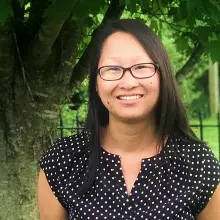
Lesley Shawler, Ph.D., BCBA,
Assistant Professor, Behavior Analysis and Therapy, School of Psychological and Behavioral Sciences
The prevalence of autism has been on the rise over the last two decades. People with autism may face deficits ranging from social, emotional, and communication skills. They have different of ways of learning, paying attention, or reacting to things. Care for people with autism cannot be left at the individual, familial or clinical level alone but must be a social and community endeavor. Community support will enrich not only the lives of people with autism and their families but society, making it more inclusive and richer. This seminar aims to educate students on evidenced-based strategies when working with individuals with autism as an effort to address this gap in community knowledge. This course will also discuss how collaboration across professional disciplines can be beneficial for individuals with autism and their families. This course is unique in that students will have the opportunity for both classroom and direct clinical experience in applying learned skills at the Center for Autism Spectrum Disorders (CASD) on campus.
Politics, Power and Ideas in Victorian Britain – New student generated seminar!
Joseph Sramek, Ph.D.,
Associate Professor
Ryan Jurich
(History and Honors) School of History and Philosophy, College of Liberal Arts
The Victorian era (ca. 1830-1900) in Britain saw massive economic and social transformations brought about by industrialization and the emergence, for the first time, of a modern class society. Government itself was transformed during this period, as parliament found itself having to grapple with national issues such as poor relief and the Irish potato famine in the mid-1840s, and an intense contest over whether the economic policy of free trade capitalism ought to prevail. Questions of suffrage and democracy, of women's rights, and of the rights of labor, came to the fore. The era saw the interplay of major modern political ideologies such as conservatism, classical liberalism, Utilitarianism, radicalism, and socialism. This seminar will engage this history in a sustained interactive manner through the use of two full-length Reacting to the Past games, one written by Dr. Sramek and another by Ryan Jurich (an Honors student) under his guidance. Reacting to the Past emphasizes experiential learning. Students grapple with major works and ideological conflicts by playing a real historical character and advancing their character's ideas and goals through both cooperative and competitive game-play.
Spring 2023
Social History of Rock and Roll
George A Brozak
Associate Director of Bands, Music
In this course, we will ask: What elements of music in a given work make it unique, interesting, and expressive? How do these elements differ from one artist to the next? How were artists (and their music) influenced by race, socioeconomic status, culture, gender, and sexuality? How did the development of various instruments influence the “birth” of rock? What new methods of performance were a result of these developments? Many artists unknowingly signed-away the rights to their music for a few dollars; how have copyright laws in America progressed?
The Earth Around You
James Conder
Professor, Geology
The Earth Around You is geology applied to living. We will examine how geologic processes and hazards influence human activities (and the reverse) and the geologic aspects of economic pollution, and waste disposal problems. The most effective way to learn about the Earth and its processes is to observe it first-hand. We will have the opportunity to discover and observe the geologic processes, structures, and treasures that shape the world around them through a study abroad opportunity in Costa Rica. The country lies in a subduction zone making it prone to earthquakes, volcanoes, and tsunamis. At the same time, the volcanic soils and topography ranging from the coast to the volcanic highlands, make for a diverse ecology and agriculture. For example, bananas and coffee grow in different climes of which Costa Rica has both. The diversity in ecosystem range from rainforest to cloud forest to desert to estuaries and coral reefs. The country is a leader in renewable energy - primarily hydropower, but the development of Lake Arenal for hydropower has come with its own environmental costs. Travel to Costa Rica will occur over Spring Break and we will be meeting before and after the travel to prepare, reflect on, and analyze. Time TBD based on the cohort. Cost: app. $3400.
Auditory and Language Processing Disorders and the Effects on Literacy and Learning – New!
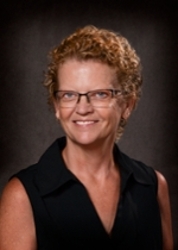
Atheana Meadows
Lecturer, Communication Disorders and Sciences
People with auditory processing disorders face certain challenges in communicating with others. They may have difficulty in "hearing" small differences in language (auditory processing disorders), continued listening in a noisy environment, or "making sense" of the words they hear. In this course, we will learn to identify and understand auditory processing deficits and their implications for how children acquire and process language and literacy. Understanding communication disorders is a universal skill, useful not just for teachers and health professionals, but in any walk of life. Designed for majors across campus, this seminar does not require any previous understanding of communication disorders. All you need to bring with you is your curiosity about how intricate and complex is our ability to communicate with others.
Pyrogeography: The History of Fire on Earth – New!
 Charles Ruffner
Charles Ruffner
Professor of Forestry, School of Forestry and Horticulture
Pyrogeography is the study of the history of fire on planet Earth integrating plant and animal evolution, global ecologies, and human-social developments through time, leading into modern issues of climate change and loss of biodiversity. Students will be exposed to the extremely long history of fire here on Earth that has shaped ecosystems as well as fostered our own human development and evolution through reading current literature and discussing modern issues of firestorms through mixed media presentations and videos. While the study of fire has a long history, this new field is exciting and integrates so many fields of scientific inquiry that surely students will find the course engaging, timely, and expansive to their breadth of studies here at the University.
Social Movements – New!
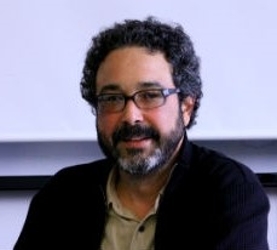 Jean-Pierre Reed
Jean-Pierre Reed
Associate Professor, Sociology
Social Movements is intended to give students a broad understanding of social movement analysis and issues. It specifically sets out to answer the following questions: What is a social movement? In what ways do they change society? Under what conditions do social movements emerge? What are the objective and subjective conditions that make political contention possible? To answer these questions, UHON 351 sets out to study the civil rights movement and the various analytical theories and concepts associated with the study of social movements.
Savage Inequalities: The Growing Wealth Gap in America
Kenneth Stikkers
Professor, College of Liberal Arts, School of History and Philosophy
This course will (a) survey the extent of wealth disparity in the U.S.; (b) identify the causes for it, both within deep-rooted attitudes and social patterns in American history (e.g., capitalism, the Protestant ethic, social Darwinism, the Horatio Alger myth, and the American dream) and in more recent events, such as changing tax policies, increasing global competition, the decline of unions, and the changing American labor force; (c) consider the various consequences of such wealth inequality, such as its effects upon education, health, American democracy, and feelings of insecurity; and (d) offer philosophical and ethical principles of justice by which students can critically examine various proposals for reversing the growing inequality of wealth, such as tax reform, wage limits, reestablishment of unions, drawing from Native American gift economies and the highly successful Mondragon economic model in the Basque region of Spain.
Intercollegiate Athletics: Origins Through Contemporary

Bobbi Knapp
Associate Professor of Sport Studies, Kinesiology

Daniel Mahony
President, Southern Illinois University System
Intercollegiate athletics has been referred to as the front porch of the modern U.S. university. What started out as student-run sport clubs at elite private institutions eventually became recruiting and marketing tools for colleges and universities throughout the U.S. This course will chart the history of intercollegiate athletics from its start on the playing fields of Yale, Harvard, Princeton, and other private institutions as student-run, student-played, and student-coached sporting clubs to the development of the Power Five Conferences and football coaches who make over $8 million dollars a year. As part of this exploration, the course will also examine the impact of systems of socio-economic class, race, ethnicity, sex, gender, sexuality, disability on the intercollegiate athletic experience. We’ll also cover topics such as amateurism, labor unions, activism and protests, academic scandals, sport-industrial-military complex, and reform.
Urban Intelligence: Systems and Models – New!
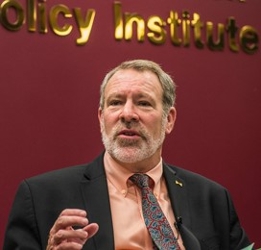
John Shaw
Adjunct Professor, Director of the Paul Simon Public Policy Institute.
This course will examine the quality of statesmanship in the public affairs of the United States. It will examine the essential qualities of statesmanship, consider its importance in American history, and ask what can be done to restore the ethos of statesmanship in the United States. Statesmanship will be essential if the nation is to address such historic challenges as health care reform, deficits and debt, and climate change. Especially in the area of climate policy, the absence of statesmanship could have catastrophic consequences for the United States and the world.
Designing Smart and Sustainable Cities-Promises and Challenges. - New!
Mehdi Ashayeri, Ph.D.
Assistant Professor, College of Arts and Media, Architecture
In recent years, advances in new technologies of information and communication technology (ICT), internet of things (IoT), big data, and artificial intelligence (AI) have dramatically changed how we experience city life and the ways in which it is still being transformed. It is now possible to plan cities with a degree of information and coordination not possible before. In this course, we will study how these technological advances may be used to design cities that center the human experience, are environmentally sustainable, and capable of responding to an uncertain future. You will learn about contemporary explorations in designing smart and sustainable cities, the challenges they face, and what is currently possible. You will be introduced to methods employed by city planners, such as data visualization and using AI and big data to predict and model. This is an introductory course designed for students across different majors. No previous knowledge of urban planning is necessary, only your imagination about what city life can be.
The Honors Colloquium
Elizabeth Donoghue
Assistant Director, University Honors Program
Learn about the world of opportunities that may support and enrich an undergraduate or graduate education. This course is an introduction to the process of applying for major scholarships; to the elements of writing style for major scholarship applications; and to other aspects typical of scholarships, graduate, and professional school applications. This class will guide you through this process of self-reflection as you craft essays, develop interview skills and discover research opportunities.
*Participation is highly selective and requires an application essay.
Contact Elizabeth Donoghue at Elizabeth.donoghue@siu.edu.
2021-2022
Born Digital
Pinckney Benedict
Professor, English
In this course, students will create narratives in the same vein as in a traditional creative writing class, but they will be combining this already complex task with a variety of other forms of knowledge acquisition, including technological, professional, social, and aesthetic. They will answer questions such as, how is storytelling relevant in a digital world? As well as, how does a storyteller engage with a digital audience? Students will learn how to cut audio and video, access a diverse audience of readers and listeners, adapt to publishing for multiple modern platforms, use innovative software, gain professional skills such as marketing and branding -- all the while engaging in complex and creative thinking, writing, and analysis. Visual storytelling in the form of virtual reality, video games, and other visual formats will also be included.
A Revolutionary Analysis of Numbers and Data
 Kwangho Choiy
Kwangho Choiy
Associate Professor of the School of Mathematical and Statistical Science
Amid the deluge of information and big data, it has become critical to be literate in fundamental mathematical principles. This course will introduce students to a revolutionary theory in mathematics that developed in the early 19th century and is relevant to analyzing phenomenon in several fields, not just in science such as physics, computer science, biology, chemistry, but also non-sciences such as economics, psychology, sociology, finance, business. The goal of the course is to empower students and to encourage inquisitiveness about numbers as a way of being human and a route to understanding human knowledge in multiple disciplines.
Healthcare Meets Virtual Reality
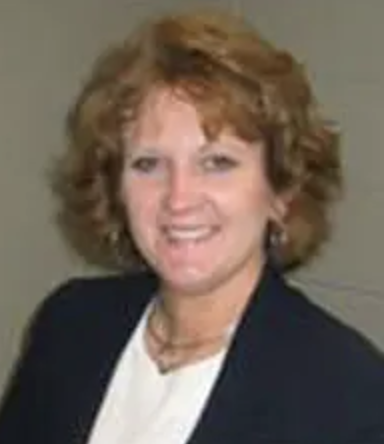
Sandra K Collins
Professor and Director, Healthcare Management
The health care industry is the fastest growing employment sector in the United States. The aging workforce, legislative movements, and the pandemic have demanded new ways of providing health care services. Drones, artificial intelligence, and virtual reality are just a few forms of innovation and technology that have entered patient care environments. It is vital that all consumers of health care services understand the how these forms of technology can improve patient care, especially in rural health environments. It is also important that we understand the ethical issues related to the use of innovation and technology. This course will take a hands-on exploration of virtual reality (VR) applications, including medical simulation; telemedicine, medical and healthcare training for nurses and other health professionals; and pain control, visualization aid for surgery, rehabilitation in cases such as stroke, phobia and trauma therapies. Students will participate in storyboard development of a case scenario and apply it in a VR environment.
Design Theories of Buckminister Fuller
Jon Davey
Professor, Architecture
The seminar will introduce students to the ideas, concept, and theory and design approaches of R. Buckminster Fuller. Buckminster Fuller (1895-1983) is the renowned inventor of the geodesic dome, the world game, and a new system of mathematics called synergetics. He was a polymath whose writings and lectures touched upon every aspect of the human condition. He was a “new-former” pointing out, exploring and prototyping designs in numerous, previously uncharted areas of science and humanity. His greatest writings were Critical Path, Synergetics, and, posthumously, Cosmography. Since his death a class of recently discovered allotropes of carbon, the fullerenes, have been named in his honor.
Hashtag Feminism: Globalization, Social Media, and the Future

Francesca Dennstedt
Assistant Professor, Spanish
Can the revolution be tweeted? In this course, we will delve into how social media and other Internet-based applications have become a political force in our global world, shaping social movements and our future. Taking a feminist lens, this course will analyze social complexity from bottom up, from specific locations, such as Latin American feminist movements to understand global themes such as neoliberalism, globalization, and resistance. What can social media tell us about our social complexity? How are we formed as political subjects in this global, digital era? What is the future of feminism? These are some of the questions that we will tackle during this course. By the end of the class, you will have a grasp over the uses of social media, a set of theoretical tools that you can employ in the future, and a practical view of feminism.
Exploring Children's Literature

Jane E. Doughtery
Associate Professor, English
This is a student-generated course, developed at the request of an Honors student desiring to go deeper into children’s literature. In this course, we will engage with a range of juvenile literature and other media, aimed at readers from the ages of 0-18. We will establish the behavioral, psychological, and educational advantages of reading to very young children, examine the development of literacy in children and adolescents, and explore how juvenile literature socializes and acculturates children and adolescents. We will determine what makes a successful children’s book and write our own, revisit the books we knew and loved when we were young(er), and consider a variety of juvenile genres, including non-fiction, horror, comedy, poetry, and fantasy. Among the issues we will discuss in relation to our chosen texts are: the history of children’s literature, language and visuals, diversity and inclusion, attachment and separation, sleep and dreams, animals and other avatars, culture and identity, achievement and history, schooling and family, myths and revisions, classics and contemporary blockbusters, audiences and fan culture, maturation and adolescence, Harry Potter and the children’s literature genre, sexuality and romance, graphic novels, and juvenile television, film, and digital platforms.
Meditation Theory And Practice
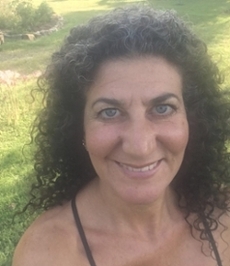
Diana Tigerlily
Associate Professor of Practice, Women, Gender, and Sexuality Studies
Meditation is a practice of sustained concentration that calms the body and quiets the mind. Research has shown that meditation can reduce stress-related issues such as anxiety, chronic pain, and sleep disorders. In this course, students will cultivate a developed personal meditation practice, enhancing their own well-being and excluding peace to those around them. This course addresses the following questions: What is meditation and what is supposed to be “happening” while I’m meditating? How will meditation help me in my daily life and with my career? Who am I? What is my purpose in life? And why do these questions relate to meditation? How do I meditate if I have racing thoughts? What happens when I regulate the relationship between thinking and breathing? How will my personal meditation practice bring benefit to others around me?
Yoga Nidra & The Art of Letting Go
Yoga Nidra is a state of expanded mental awareness and deep physical relaxation accessed through guided meditation and visualization. While in the state of Yoga Nidra, deep healing is possible, creativity is enhanced, and the capacity to manifest one's goals and visions is maximized. In this course, students will experience the documented benefits of a consistent, weekly Yoga Nidra practice with an emphasis on the art of letting go and the development of a sankalpa, a long-term intention. This course asks: 1. What does it mean to consciously create my reality, and how do I do that? 2. How do we "let go" of, or be non-attached to, the things we love and fear, and how is "letting go" (non-attachment) not the same, as not caring? 3. What is the role of forgiveness in Yoga Nidra and Letting Go? 4. How are the concepts of selflessness and selfishness important in creating reality and resolving karma?
Yoga and Sound Healing
 Maria V. Johnson
Maria V. Johnson
Associate Professor of Ethnomusicology, School of Music
How can yoga and sound practices help foster clearer thinking, emotional equilibrium, a sense of peace and wellbeing, balance, flow and ease in navigating your life? How can yoga and sound practices facilitate greater awareness, compassion, empathy, presence, and a deeper interpersonal communication? How can practices of yoga and sound create safe spaces that nurture internal processes and a sense of feeling at home in your body while fostering a sense of community and belonging? What is the power of yoga, sound/music, and other expressive arts?
The Aesthetic Impulse: Why humans make art and how art makes us human?

Eric Ruckh
Professor, History, Director University Honors Program, SIUE

Jyotsna Kapur
Professor, Cinema and Media studies, Director University Honors Program, SIUC
What is art and why do humans make it? Why do we seek it out and spend time (and money) to experience it or acquire it? From the famous paleolithic cave paintings, stretching across the entirety of Southern Eurasia from approximately 35,000 to 40,000 years ago, to the latest Banksy, humans have been making art, that is both representing the world and inventing other worlds (sometimes at the same time). This drive is one of the definitive features of our species, of who we are and how we think. It seems an unavoidable necessity—the reason why we can be described both as homo faber (as maker) and homo ludens (as playful). If it is so important, what is it? And how does it express itself? Is the artistic impulse an impulse to preserve or to play, to waste or to wonder? Is it how we grasp the reality of our existence or how we delude ourselves away from it? Is the artistic impulse liberatory—an expression of a drive to free ourselves and others from exploitation—or does it rest on structures of exploitation? Or does it both at the same time? In this seminar, we will explore these questions, while navigating their tensions and contradictions. We will put the ancient world in discussion with the contemporary, while considering thinkers, artists and movements as part of a multi-cultural historical archive that holds these dynamic tensions in context.
Spring 2022: Faculty Fellows for UHON 351 COURSE
Social History of Rock and Roll

George A Brozak
Associate Director of Bands, Music (F, M, U)
In this course, we will: 1. Ask what elements of music in a given work make it unique, interesting, and expressive, and how these elements differ from one artist to the next. 2. Investigate how artists (and their music) are influenced by systems and structures like race, socioeconomic status, culture, gender, and sexuality. 3. Trace the development of various instruments and their roles in the “birth” of rock. What new methods of performance were discovered through these developments? 4. And, we will be looking at how copyright laws in America have changed over the years. You may be surprised to learn how many artists unknowingly signed away the rights to their music for just a few dollars.
Mathematics of Climate (O, S1)
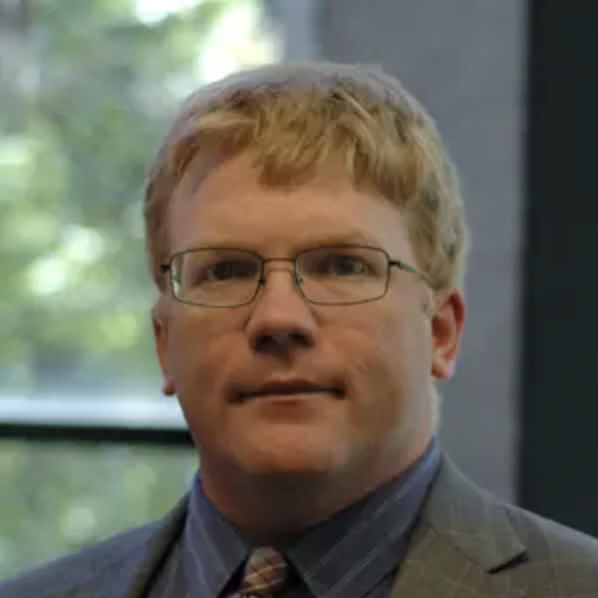
Wesley Calvert
Associate Professor, School of Mathematical and Statistical Sciences
We are living on the precipice of an answer to the most existential question ever asked in the history of our species: Will humanity survive the rapidly changing climate edged on by the consequences of our industrial global ventures? There are few historical comparisons of this weight and magnitude, fewer mutual burdens of uncertainty that the whole species could ponder on. But how do we begin to answer this question? With resolve! And the patience to face the thousands of other questions we must answer first: As global temperatures change, does the world react gradually, or with sudden shifts? How could an increase in temperature give us not only warmer weather but weirder weather? And even with a robust hypothesis, we must still consider the uphill battle of reaching mass consensus. How do you create a change in overall public opinion? How can we make sound, testable, and persuasive mathematical models that let us predict how the world works? In this course, we will attempt to discover methods by which some of these questions might be answered.
The Earth Around You (S1)

James Conder
Professor, Geology
The Earth Around You is geology applied to living. We will examine how geologic processes and hazards influence human activities (and the reverse) and the geologic aspects of economic pollution, and waste disposal problems. The most effective way to learn about the Earth and its processes is to observe it first-hand. We will have the opportunity to discover and observe the geologic processes, structures, and treasures that shape the world around them through a study abroad opportunity in Costa Rica. The country lies on a subduction zone making it prone to earthquakes, volcanoes, and tsunamis. At the same time, the volcanic soils and topography ranging from the coast to the volcanic highlands, make for a diverse ecology and agriculture. For example, bananas and coffee grow in different climes of which Costa Rica has both. The diversity in eco-systems ranges from rain forest to cloud forest to desert to estuaries and coral reefs. The country is a leader in renewable energy - primarily hydropower, but the development of Lake Arenal for hydropower has come with its own environmental costs. Travel to Costa Rica will occur over Spring Break and we will be meeting before and after the travel to prepare, reflect on, and analyze. Time TBD based on the cohort. Cost: app. $3400.
Future of Space Exploration (S1)

Liliana Lefticariu
Associate Professor, College of Agriculture, Life, And Physical Sciences
The “Future of Space Exploration” is a seminar course in which you will learn about the past, ongoing, and future space exploration missions led by NASA, ESA, and other space agencies, as well as, by private companies or mixed state-private endeavors. Also pertinent to our theme is the physical exploration of space by unmanned robotic space probes as well as the human spaceflight of the planets, moons, and asteroids in the Solar System. This course will also provide you with a general overview of the origin of the solar system, the composition of the planets and moons of the Solar System, and the variety of extraterrestrial objects that will become a major source of natural resources. We will discuss the latest technologies to be employed for the colonization of Moon and Mars including in areas of extraterrestrial water and mineral mining, soil augmentation, and food production, and technologies developed for solar and other forms of energy necessary for sustainable Moon or Mars colonies. Additional discussion will include the legal aspects associated with space exploration. We’ll be covering a broad range of subjects, and this course is designed to stimulate intellectual excitement, pique your curiosity, and inspire valuable independent thinking. The 21st Century is the century of space exploration and colonization of new planets! It’s an exciting time to witness!
Intercollegiate Athletics: Origins Through Contemporary (M, O, U)
Bobbi Knapp
Associate Professor of Sport Studies, Kinesiology
 Daniel Mahony
Daniel Mahony
President, Southern Illinois University System
Intercollegiate athletics has been referred to as the front porch of the modern U.S. university. What started out as student-run sport clubs at elite private institutions eventually became recruiting and marketing tools for colleges and universities throughout the U.S. This course will chart the history of intercollegiate athletics from its start on the playing fields of Yale, Harvard, Princeton, and other private institutions as student-run, student-played, and student-coached sporting clubs to the development of the Power Five Conferences and football coaches who make over $8 million dollars a year. As part of this exploration, the course will also examine the impact of systems of socio-economic class, race, ethnicity, sex, gender, sexuality, disability on the intercollegiate athletic experience. We’ll also cover topics such as amateurism, labor unions, activism and protests, academic scandals, sport-industrial-military complex, and reform.
Contemplating the Apocalypse in Literature, Film, and Philosophy (F, U)
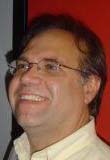
Kenneth Stikkers
Professor, Department of Philosophy
It’s the end of the world as we know it! Or as a few people have imagined it. In this class, we’ll peer into the history of one of humanity’s most macabre and fascinating quandaries. We’ll ask: What are some of the main ways in which the end of civilization or the end of humanity have been envisioned throughout much of Western history? And how do current concerns and fears regarding climate change compare and contrast with previous concerns and fears in the West regarding the end of civilization, humanity, and the world? What connections can we make by the contemplation of one's own death compared and contrasted with contemplation of the death of civilization and humanity?
Third Cinema, Latin American Documentary (F, M, U)
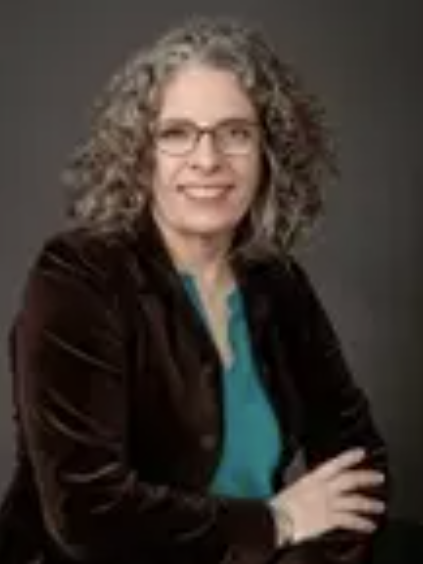
Jennifer Smith
Associate Professor and Chair, Spanish
 Jyotsna Kapur
Jyotsna Kapur
Professor, Cinema and Media studies, Director University Honors Program, SIUC
This course considers Latin American Third Cinema in relation to its ongoing impact on socially committed art in our time. Third Cinema grew out of the militant anti-capitalist and anti-imperialist struggles of the 60s and 70s in Latin America and is known for its radical interventions in cinematic form, content, and transformation of the conception of the cinema spectator. We will look at founding texts, filmmakers and theorists, including Patricio Guzmán, Santiago Álvarez, Fernando Solanas & Octavio Getino, Julio García Espinosa, Fernando Birri, Mikhail Kalatozov, Glauber Rocha, Tomás Gutiérrez Alea, and Jorge Sanjinés and consider its legacy both in terms of its investigations into art and politics as well as how it has now surfaced in the radical media produced by social movements employing a range of media technologies, from video to the Internet. In bringing together cinema studies with history, culture, and political activism, this course attempts to deepen our understanding of culture in the broadest sense.
Yoga for Harmonious Living – (L, M, U)

Diana Tigerlily
Associate Professor of Practice, Women, Gender, and Sexuality Studies
Healing begins from a state of relaxation. This statement is deceptively simple and incredibly profound. As a society, we are far from relaxed. We normalize stress and glorify sleeping less; we value productivity over life quality and balance. This course introduces students to the practice and study of Yoga as a way to create and sustain a lifelong practice of self-awareness and healthy living through a focus on the Yamas and Niyamas, and Hatha Yoga. This course asks, how can I relax when I'm so busy? What is Yoga? Meditation? The Yamas and Niyamas? Pranayama? Why do I need to learn how to breathe when I'm already breathing? How can knowledge and practice of Yoga philosophy benefit me? How do I incorporate strategies for living at my fullest?
Yoga for Self-Realization – (L, M, U)
Physical and mental imbalance is one of the biggest obstacles to self-realization. This course, Yoga for Self-Realization, introduces Ayurveda as a way to bring our systems back into balance while juggling the demands of being a University Honors Student. Ayurveda is a holistic system that emphasizes the physical, emotional, mental, and spiritual aspects of health and well-being, and it utilizes diet, lifestyle regimens, yogic practices, and meditation as methods of wellness. In this course, students will learn how to determine their individual Ayurvedic constitutions and the foods, yoga poses, and lifestyles best suited to their unique, personal make-up. This course asks, what is Ayurveda and how can it facilitate holistic well-being? What are the subtle body and its relationship to my physical body? Why do certain foods impact my emotional and mental states? How do I create a lifestyle for holistic health & self-realization.
2020-2021
Fall 2020: Faculty Fellows in the Cluster on Cradle to Cradle
Arts of the Anthropocentric: Living on a Damaged Planet
Edward Brunner, Professor Emeritus, English
The “Anthropocentric” defines a time when the work of humans has devastatingly altered the planet’s environment. The results are unnerving enough to demand innovative approaches. This course studies the power of artworks in a variety of different formats (photography, painting, verse, dance, film, animation, and short fiction) to register the threat of a catastrophic future by engaging us both intellectually and emotionally. These artworks may also carry within them clues, tips, and promptings that offer alternative approaches to the crisis before us. We will ask:
When artists and writers place the global environmental crisis at the center of their work, what should we expect as a takeaway? How do some artworks present themselves as “arts of living” – encounters that both explain and guide? Where can we find artworks that serve us both intellectually and emotionally?
Bioethics: The Human Experience in a Rapidly Changing World
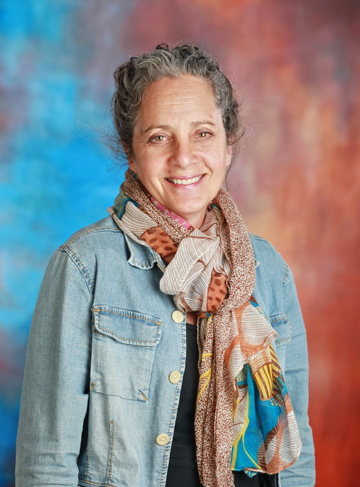 Marsha Ryan, M.D., School of Medicine
Marsha Ryan, M.D., School of Medicine
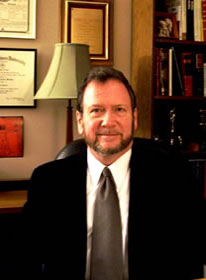 Tom Britton, J.D., School of Law
Tom Britton, J.D., School of Law
Bioethics is a field of study that involves the ethical considerations of scientific research and the application of scientific knowledge to humans, particularly in the practice of medicine. This course is taught by a physician and a lawyer who bring different approaches to bioethics questions. The topics covered include reproductive rights (Cradle), death and dying (Grave), medical experimentation on humans, and decision making for the elderly. As science progresses, the application of research results will raise new ethical questions, often of increasing complexity and difficulty.
From Earth to the Stars: The Story of the Galactic Diaspora
 Pinckney Benedict, Professor, English
Pinckney Benedict, Professor, English
This course asks students imaginatively to consider what a human diaspora from Earth to the stars might look like and what effects it might have on our conception of "humanity." Using novels, films, TV shows, computer games, podcasts, and VR experiences as our source material, the class will roleplay a multi-year galactic journey aboard a colony ship. Everyone is welcome to contribute their real-world skills, from any discipline or background, or to invent a fictional skillset. No experience in science fiction or technology is required. Coursework will consist of students' keeping detailed video and audio logs of their shipboard duties and off-duty lives; "away missions" that will involve scavenging for resources and encounters with alien lifeforms (faculty?); and finding inventive ways to live together and to cooperate in overcoming the inevitable obstacles that will crop up on such an adventure. By semester's end, we will either reach a habitable world, the cradle of a new human civilization (whatever we decide that will be), or we will drift forever, lost among the stars.
Sustainability and the Collective Imagination: The End or Beginning of a New Way of Life?
 Jyotsna Kapur, Professor, Cinema and Sociology
Jyotsna Kapur, Professor, Cinema and Sociology
This course is an iteration of Innovations in Sustainability, a student generated course offered in Fall 2019. We will study communities, practices, and principles that are pioneering ways of living, relating, and creating a sustainable future in the midst of the contemporary global environmental, economic, and political crises. The premise is that the new emerges from the old, both in nature and in human affairs. What are the ways in which the new is being imagined and practiced in communities around the world? How does this imaginary draw on a history of utopian thinking from the past? What is it about our nature as a species that makes us have such a destructive and creative impact on our planet? What does re-inventing our way of life mean? Finally, what are the structural reasons for our current crisis? We will find answers by drawing upon faculty from across disciplines on our campus and by students working in groups on projects that seek to build sustainable futures in the present.
Tales of Two Empires: A Cross-Disciplinary and Diachronic Vision of the Transformation of the Inca Empire Under the Spanish Empire
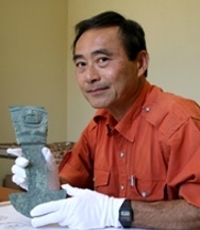 Izumi Shimada, Professor, Anthropology
Izumi Shimada, Professor, Anthropology
In the early part of the 16th century, two totally independent and disparate civilizations, the Incas and the Spanish, confronted each other. In this course, we ask: What short- and long-term consequences, regional and global impacts have resulted from the fateful encounter in 1532? How could a culture (lnca) without writing, markets, a monetary system, and other features that are commonly thought to be vital in a "civilization" attain the status of a great civilization? In fact, how did the lnca, a minority non-literate ethnic group establish and govern their vast empire? What do we mean by a civilization or a civilized society? What sources of information can be used and how can we cope with inherent biases in information and our own prejudices? What are resilient and surviving indigenous Andean cultural practices, institutions, beliefs and techniques/technologies that are relevant and beneficial to modern life in and out of the Andes? Against the lineal notion of From Cradle to Grave we will consider regeneration, invention, and ingenuity as fundamental aspects of human history. In fact, the unilineal vision of "Cradle to Grave" is essentially not applicable to the Andean civilization (and many nonindustrial societies and cultures), past and present in both material and nonmaterial senses.
Other Honors Courses
Democracy and the 2020 Election
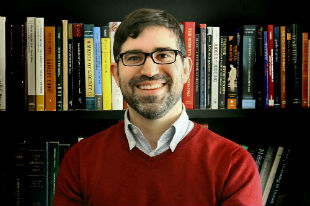 Benjamin Bricker, Assistant Professor, Political Science
Benjamin Bricker, Assistant Professor, Political Science
The 2020 election season will be a momentous time for American democracy. The choices - both in policy and in character - likely will be stark. In this course, we will examine the 2020 election as a current political and social event. We will also examine the 2020 election in the larger context of democratic theory and comparative democratic practices.
This course will address many of the largest questions in society today: What is the nature of democracy? What are the stakes in the 2020 election? How does the 2020 election impact the future direction of environmental, economic, and social policies in the United States? Can we use the U.S. election experience to draw larger insights and conclusions on democracy worldwide, and policy worldwide? How can we ensure that democracy will endure?
Intercollegiate Athletics: Origins Through Contemporary

Dr. Bobbi Knapp, Associate Professor of Sport Studies, Kinesiology
 Dr. Daniel Mahoney, President, Southern Illinois University System
Dr. Daniel Mahoney, President, Southern Illinois University System
Intercollegiate athletics has been referred to as the front porch of the modern U.S. university. What started out as student-run sport clubs at elite private institutions eventually became recruiting and marketing tools for colleges and universities throughout the U.S. This course will chart the history of intercollegiate athletics from its start on the playing fields of Yale, Harvard, Princeton, and other private institutions as student-run, student-played, and student-coached sporting clubs to the development of the Power Five Conferences and football coaches who make over $8 million dollars a year. As part of this exploration, the course will also examine the impact of social class, race, ethnicity, sex, gender, sexuality, disability on the intercollegiate athletic experience. The content will also cover topics such as amateurism, labor unions, protests, academic scandals, sport-industrial-military complex, and reform.
Meditation Theory and Practice
 Diana Tigerlily, Associate Professor of Practice, Women, Gender, and Sexuality Studies
Diana Tigerlily, Associate Professor of Practice, Women, Gender, and Sexuality Studies
Meditation is a practice of sustained concentration that calms the body and quiets the mind. Research has shown that meditation can reduce stress-related issues such as anxiety, chronic pain, and sleep disorders. In this course, students will cultivate a developed personal meditation practice, enhancing their own well-being and excluding peace to those around them. This course addresses the following questions: What is meditation and what is supposed to be “happening” while I’m meditating? How will meditation help me in my daily life and with my career? Who am I? What is my purpose in life? And why do these questions relate to meditation? How do I meditate if I have racing thoughts? What happens when I regulate the relationship between thinking and breathing? How will my personal meditation practice bring benefit to others around me?
Yoga for Harmonious Living
Healing begins from a state of relaxation. This statement is deceptively simple and incredibly profound. As a society, we are far from relaxed. We normalize stress and glorify sleeping less; we value productivity over life quality and balance. This course introduces students to the practice and study of Yoga as a way to create and sustain a lifelong practice of self-awareness and healthy living. We will practice and study yoga postures and philosophies, including Hatha Yoga sequences for balance and renewal; The Yoga Sutras, emphasizing the Yamas (moral restraints), and the Niyamas (moral observances); and Eastern anatomies and applications for holistic health, such as the Koshas and the Chakras; and centering tools of breathing and meditation.
The Nature of Sound: Learning to Listen to and Play in our Natural and Build Habitats
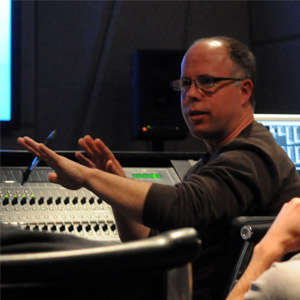
Jay Needham, Professor, Radio, TV and Digital Media
This course considers sound from a variety of unique perspectives. We'll learn about how we, as humans hear, communicate, and create through the audio spectrum as well as how we use technology to extend our abilities to listen in to our environment and to others. We'll also ask critical questions about sound from eco-critical perspectives, delving into the nature of our species as capable of experiencing and producing sound within a specific range of the audible spectrum. We will consider music as a defining feature of our humanity, the role it plays in our collective listening and creation of sound. From break-beats, film soundtracks and sound archives, we are all active collectors and makers of sound. Finally, we'll consider the historical and personal connections that sound has to architecture. It turns out that buildings can act as instruments and they also need voices. Where will your voice sound its presence?
Yoga and Sound Healing
 Maria Johnson, Associate Professor, Music
Maria Johnson, Associate Professor, Music
How can yoga and sound practices help foster clearer thinking, emotional equilibrium, a sense of peace and wellbeing, balance, flow and ease in navigating your life? How can yoga and sound practices facilitate greater awareness, compassion, empathy, presence, and a deeper interpersonal communication? How can practices of yoga and sound create safe spaces that nurture internal processes and a sense of feeling at home in your body while fostering a sense of community and belonging? What is the power of yoga, sound/music, and other expressive arts?
Spring 2021: Faculty Fellows in the Cluster on Cradle to Cradle
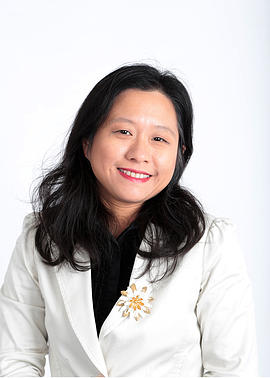 Tao Huang, Assistant Professor, School of Art and Design
Tao Huang, Assistant Professor, School of Art and Design
Desigining Sustainability
What have the visionaries such as Buckminister Fuller and William McDonough discovered as the new directions for the future of our society? How do we create visible and actionable solutions for sustainable development? How have various industries responded to the triple-bottom-line challenge despite their constant needs to generate profits and grow economically? What are some of the most innovative and novel ways of responding to various environmental crisis? What is systems theory? How does one conduct "life cycle analysis"? What skill sets or tools can you prepare yourself with to build a more sustainable future?
The Maternal in Movement
 Darryl Clark, Assistant Professor, Theatre
Darryl Clark, Assistant Professor, Theatre
The Maternal in Movement will answer questions like how the maternal has been interpreted through dance idioms such as ballet, modern and contemporary. How have these interpretations been informed by ongoing developments in the areas of psychology and women’s studies? How can we come to a deeper understanding of role of the mother in western culture as it has been impacted by technology? How has the idea and interpretation of motherhood impacted the child in the words selected for study? How have the interpretations been informed by/inform other forms and works of art and entertainment? This course will promote a greater understanding of the history and development of dance forms for the theatre. The course will also show the contributions made to dance by women dance artists and artists of color.
The Myth of Progress, and Why it Undermines Sustainability
 Kenneth Stikkers, Professor, Philosophy
Kenneth Stikkers, Professor, Philosophy
Whereas throughout most of human history, time has been experienced as an ever-turning cycle, a distinguishing feature of the West has been its linear, progressive conception of history, On an individual level it is the process of moving from cradle to grave. On a cultural level it is the story of continuous and inevitable ‘progress.’ How did such a nation arise in the West? What are the main roots? How does it contrast non-Western experiences of time as circular? What have been its most influential articulations? What have been some of its main expressions and consequences? How has it affected the way in which we experience death in the West, and especially in America? How does it govern our understanding of education? How has it influenced Western views of economy? How has it influenced Western understandings of nature and contributed to environmental degradation?
Self-Cultivation in Local Sustainable Development: The Evergreen Community Model
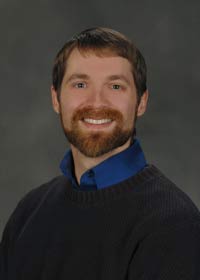
Logan Park, Associate Professor, Forestry Recreation and Park Management
The Evergreen Community Model course is designed by Forestry & Natural Resource students and professors with the purpose to facilitate a comprehensive learning experience for an interdisciplinary class of honors students as they seek to apply themes in sustainable development, landscape planning, and culture-environment interactions to real-world problems at Evergreen Terrace Apartments. This class will act as a place-based education model, informing the scope of class projects with the self-identified needs of Evergreen Terrace’s multicultural population. A synthesis of formal and nonformal learning opportunities will blend personal introspection with the study of natural, physical, and social sciences - applying the different perspective lenses as we engage in field visits, community capacity building efforts, and a series of guest lectures. Students will walk away with new meaningful relationships, impactful projects, and a uniquely-tailored educative experience.
Other Honors Courses
The Mississippi River: History and Culture
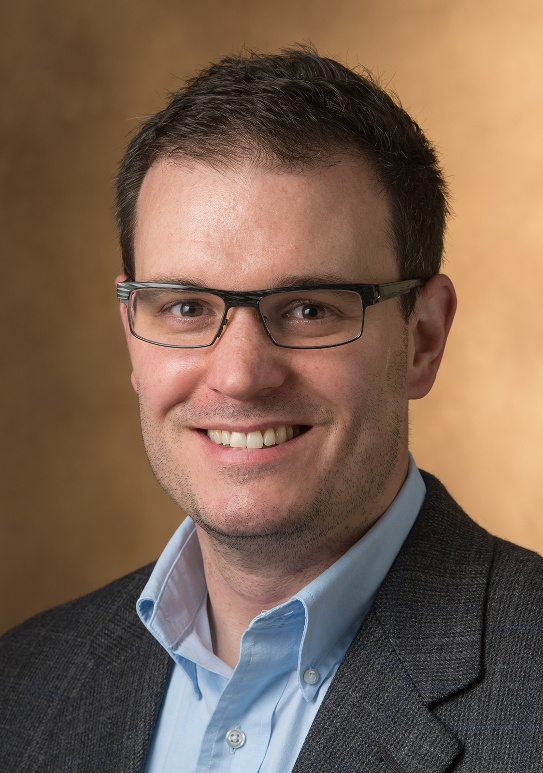 Jeffrey Manuel, Associate Professor, Department of Historical Studies, SIUE
Jeffrey Manuel, Associate Professor, Department of Historical Studies, SIUE
The Mississippi River defines central North America and the SIU campuses. For thousands of years, the river has shaped the environment, economy, and culture of its watershed and the people who lived in it. Yet the river often goes unnoticed—a quiet part of our infrastructure—until it overtops its engineered banks to assert its fundamental nature. This seminar will focus on the Mississippi River as a crucial but little-understood actor in history. We will engage with the river’s environmental, economic, and cultural histories. The river also serves as a launching point for deeper questions about the relationship between humans and our environment: Can humans control nature? If so, at what cost? Is our economy fundamentally rooted in nature? Does the natural environment determine culture?
At the conclusion of this seminar, you will: understand environmental history approaches and methods, including how humans shape, and are shaped by, the environment; understand the history of the Mississippi River and human settlement in its watershed, from prehistory to the present; and be able to analyze major questions in human-environmental relations using interdisciplinary methods.
Calling Bullshit: Data Reasoning in a Digital World
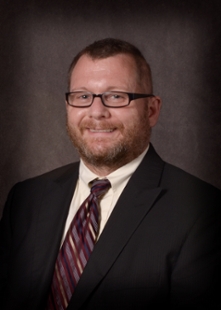
Scott McClurg, Professor, Journalism
This course draws information from http://callingbullshit.org, and is co-taught through Political Science and Journalism lenses. What do we mean, exactly, by “bullshit” and “calling bullshit”? Bullshit involves language, statistical figures, data graphics, and other forms of presentation intended to persuade by impressing and overwhelming a reader or listener, with blatant disregard for truth and logical coherence. Calling bullshit is a performative utterance, a speech act in which one publicly repudiates something objectionable. The scope of targets is broader than bullshit alone. You can call bullshit on bullshit, but you can also call bullshit on lies, treachery, trickery, and injustice. In this course we will teach you how to spot the former, and effectively perform the latter.
Evolutionary Biology and Religion

Kamal Ibrahim, Associate Professor, School of Biological Sciences
What are the major religious groups’ views and positions on evolution? Is there necessarily a conflict between religion and evolutionary biology? What is its nature and how has it evolved? What is the current status of the debate over “scientific creationism” and “intelligent design”? How common is religious belief among scientists and how do they reconcile belief and science?
Health Communication: Theory, New Strategies and Campaigns

Kavita Karan, Professor, Journalism
This course explores the urgent need to understand good health practices for healthy behaviors and survival strategies for leading a healthy lifestyle. What are the methods of communicating with people at different levels in the health care industry? How can we study health risks and problems of 8-10 countries across the world and how they have tackled the issues through effective plans and communication strategies? How should campaigns be planned to communicate healthy practices, prevention and control of health issues and diseases? How is the internet and new media technologies, including social media, supporting health information?
Restoring American Statesmanship

John Shaw, Adjunct Professor and Institute Director of the Paul Simon Public Policy Institute
This course will examine the quality of statesmanship in the public affairs of the United States. It will examine the essential qualities of statesmanship, consider its importance in American history, and ask what can be done to restore the ethos of statesmanship in the United States. Statesmanship will be essential if the nation is to address such historic challenges as health care reform, deficits and debt, and climate change. Especially in the area of climate policy, the absence of statesmanship could have catastrophic consequences for the United States and the world.
Meditation Theory And Practice

Diana Tigerlily, Associate Professor of Practice, Women, Gender, and Sexuality Studies
Meditation is a practice of sustained concentration that calms the body and quiets the mind. Research has shown that meditation can reduce stress-related issues such as anxiety, chronic pain, and sleep disorders. In this course, students will cultivate a developed personal meditation practice, enhancing their own well-being and excluding peace to those around them. This course addresses the following questions: What is meditation and what is supposed to be “happening” while I’m meditating? How will meditation help me in my daily life and with my career? Who am I? What is my purpose in life? And why do these questions relate to meditation? How do I meditate if I have racing thoughts? What happens when I regulate the relationship between thinking and breathing? How will my personal meditation practice bring benefit to others around me?
Yoga For Self-Realization
A sister course to Yoga for Harmonious living, this course asks: What are defining elements of Yoga and Ayurveda? How can they facilitate my holistic well-being? What is the subtle body and its relationship to my physical body and higher self? Why do certain foods impact my emotional and mental states? How can I utilize the study of my Doshas (energies) to enhance holistic health? How do I create an optimal lifestyle regimen for holistic health and self-realization?
UHON 111 - HONORS COLLOQUIUM (BY INVITATION ONLY)
The Honors Colloquium (Becoming an Honors Scholar) is an introduction to the world of opportunities that may support and enrich an undergraduate or graduate education. This course is an introduction to the process of applying for major scholarships; to the elements of writing style for major scholarship applications; and to other aspects typical of scholarships, graduate, and professional school applications. This class will guide you through this process of self-reflection as you craft essays, develop interview skills and discover research opportunities.
Participation is highly selective and requires an application, essay, and interview. For more information on this course, contact Elizabeth Donoghue at elizabeth.donoghue@siu.edu or stop by her office at Morris 110C.

